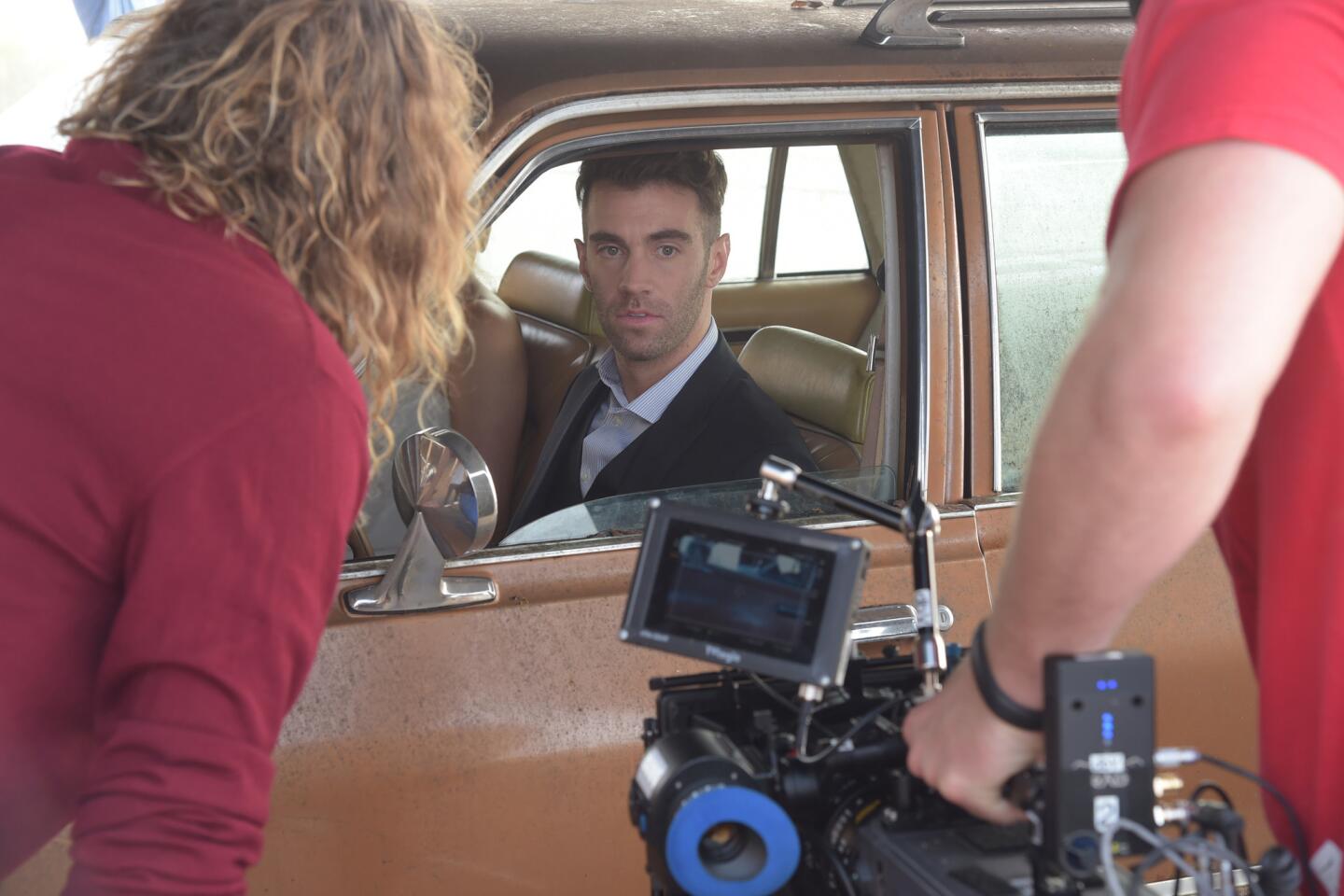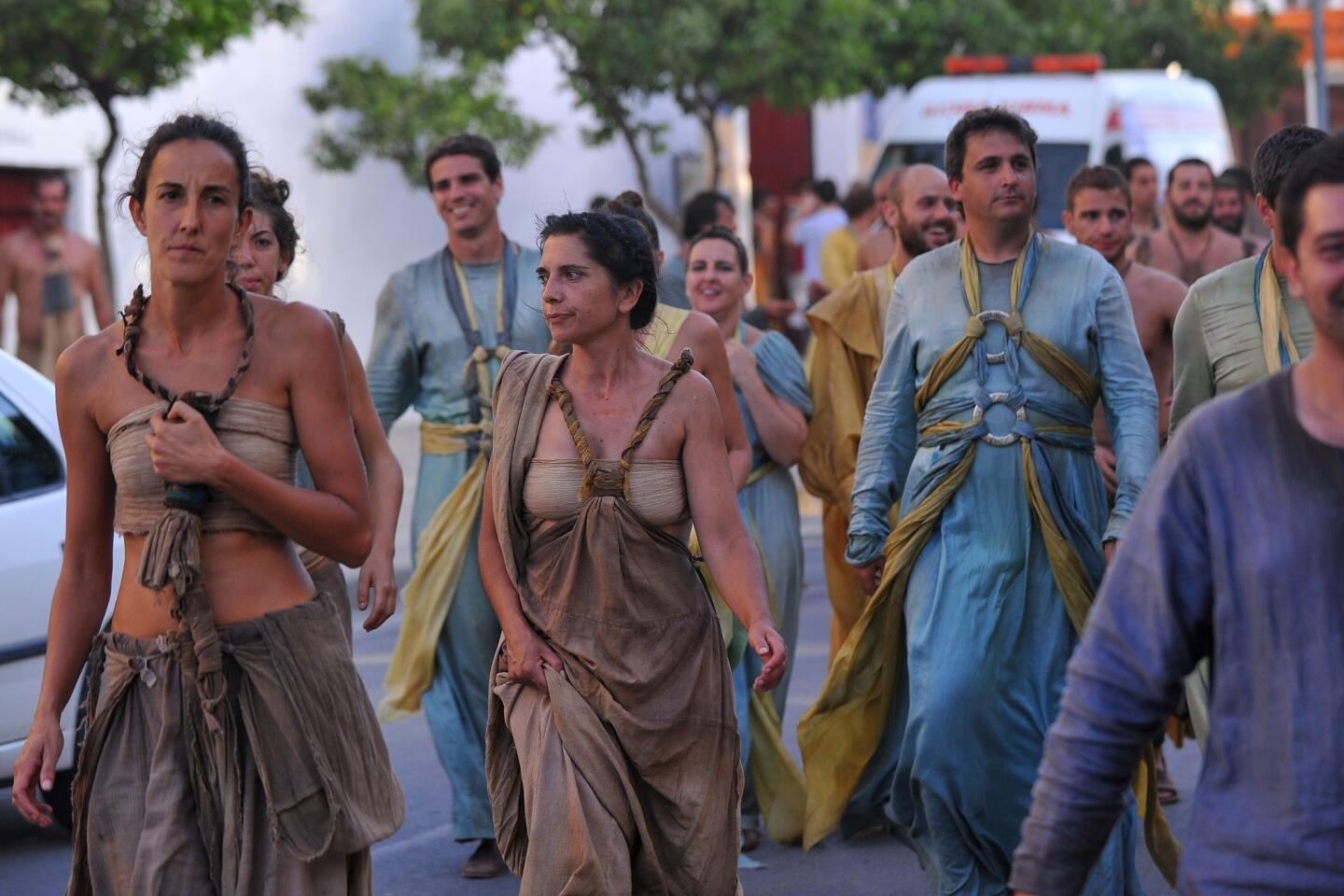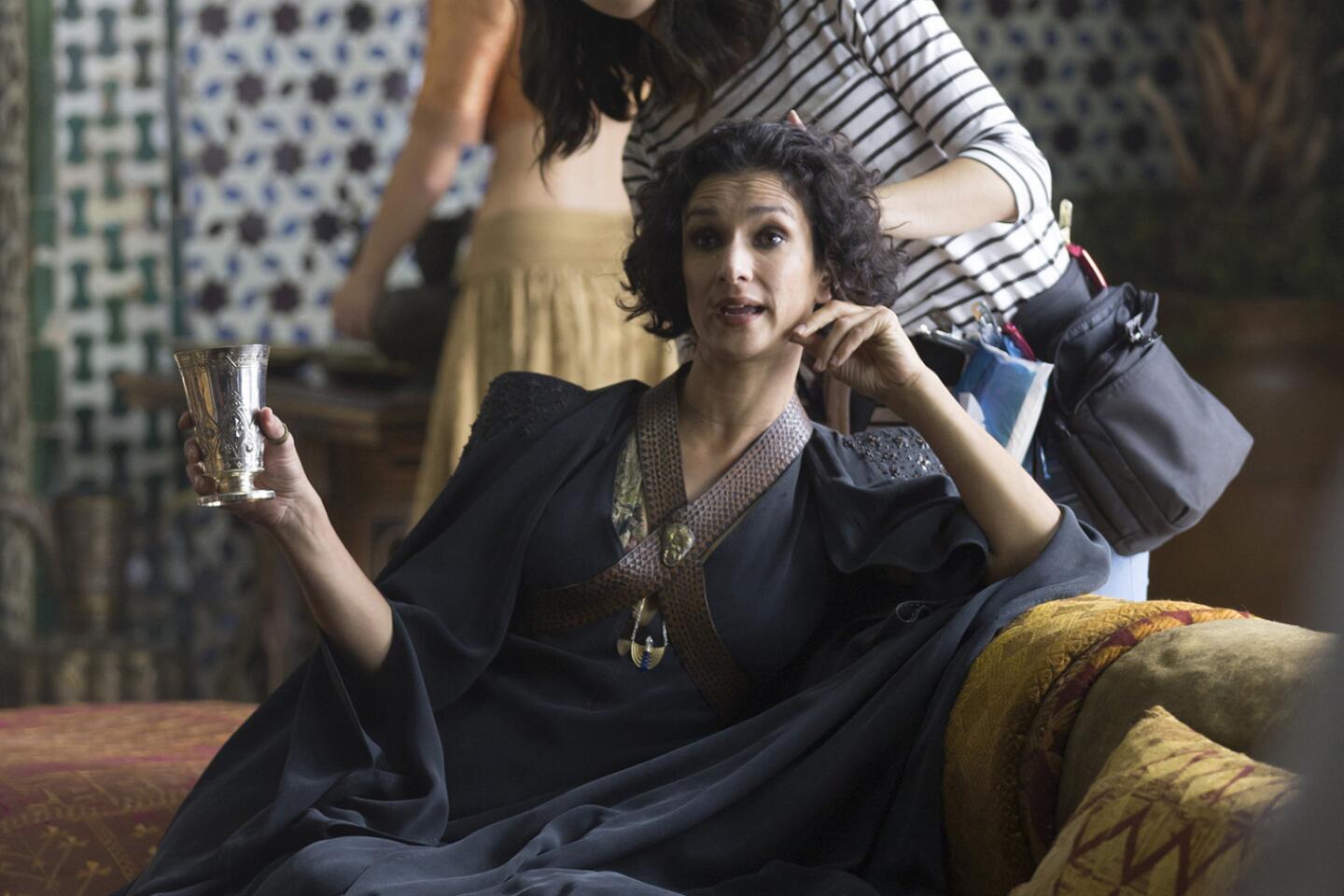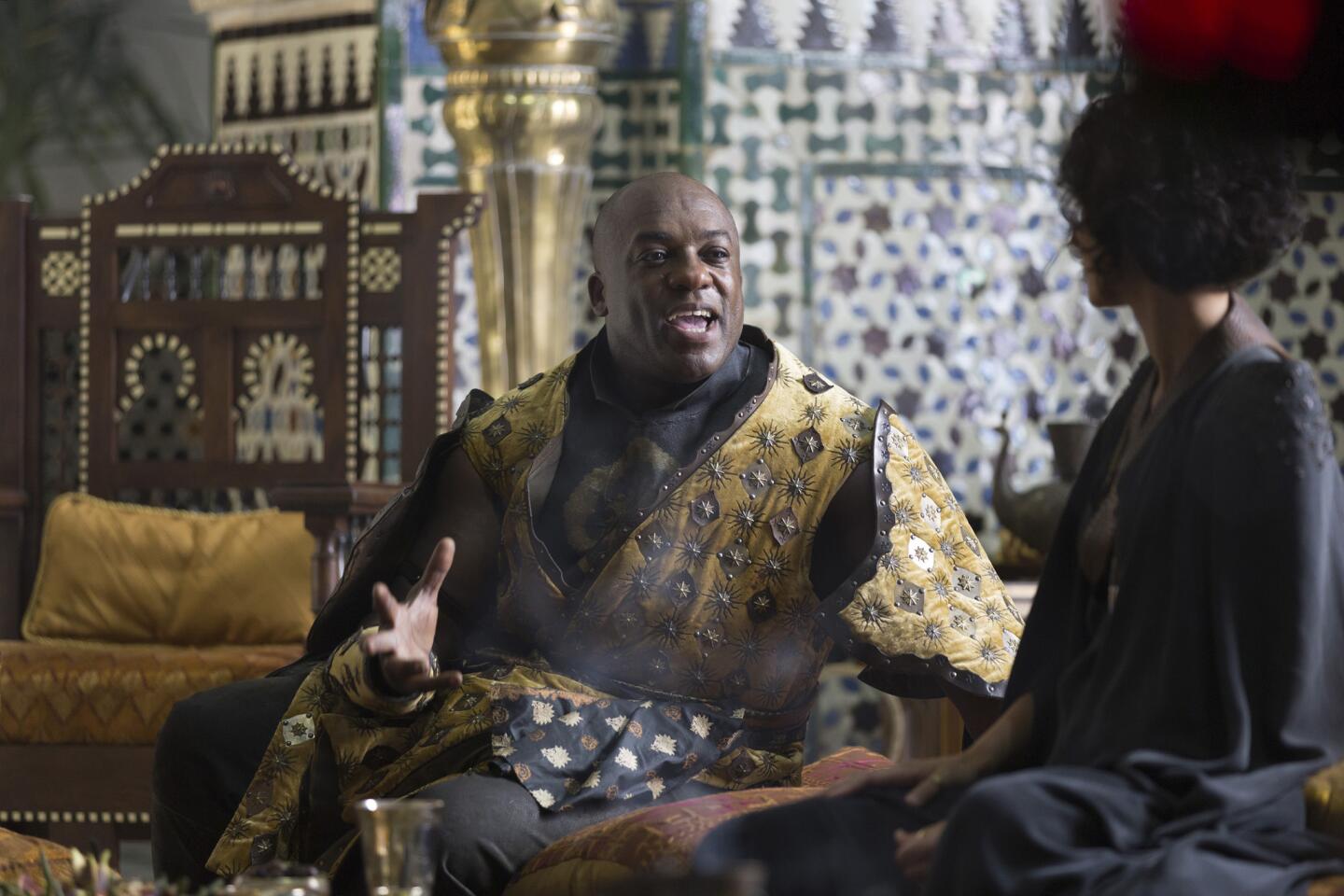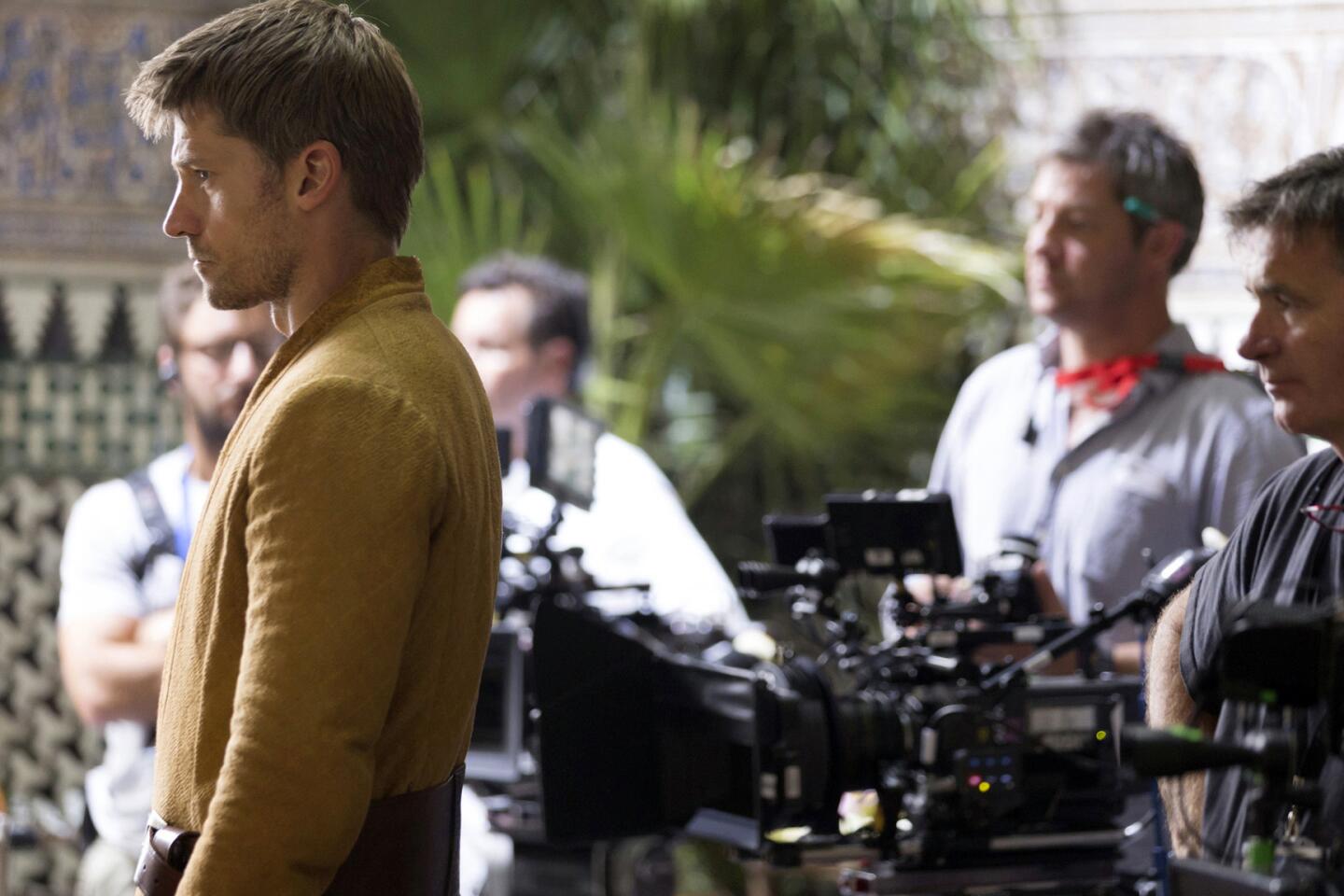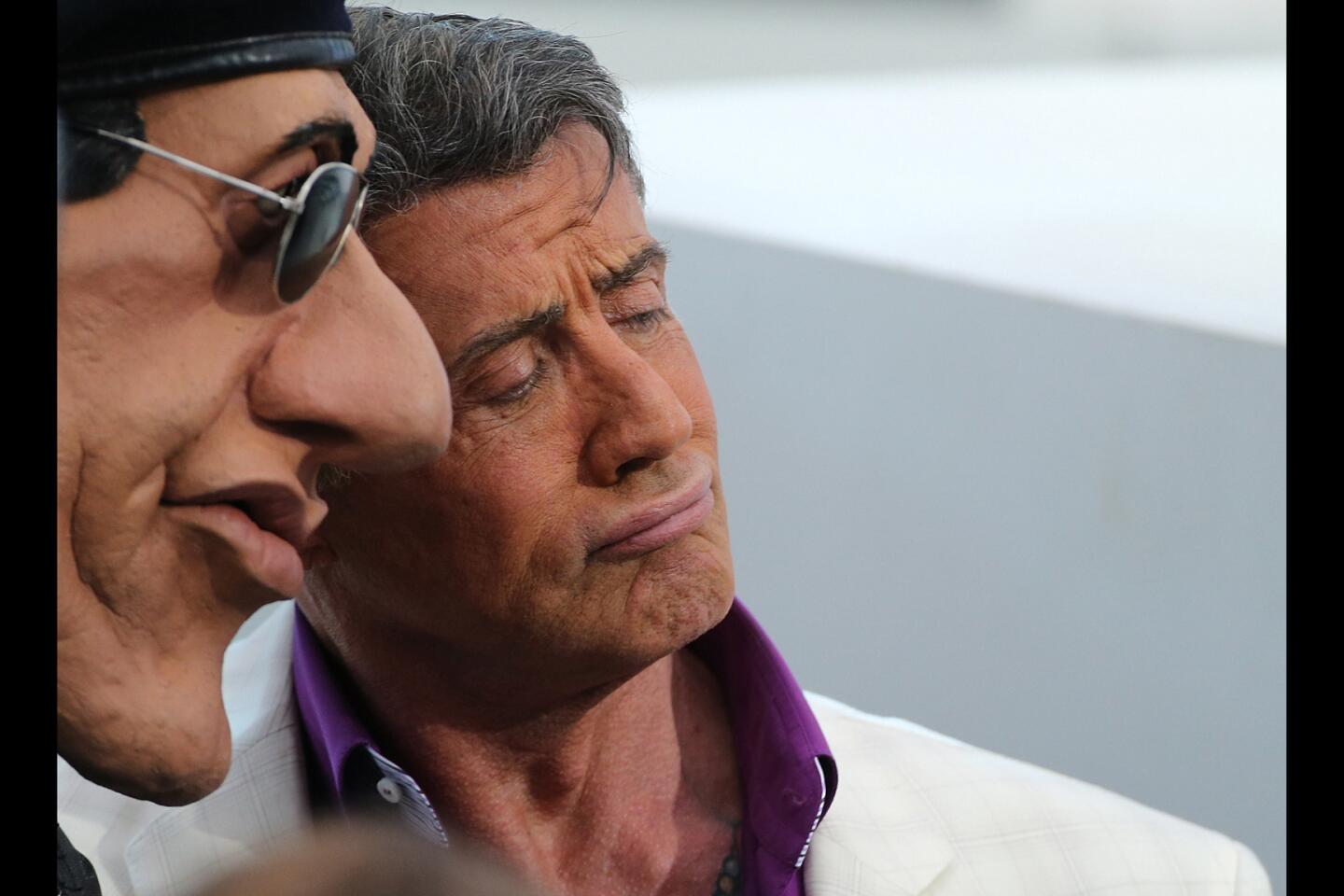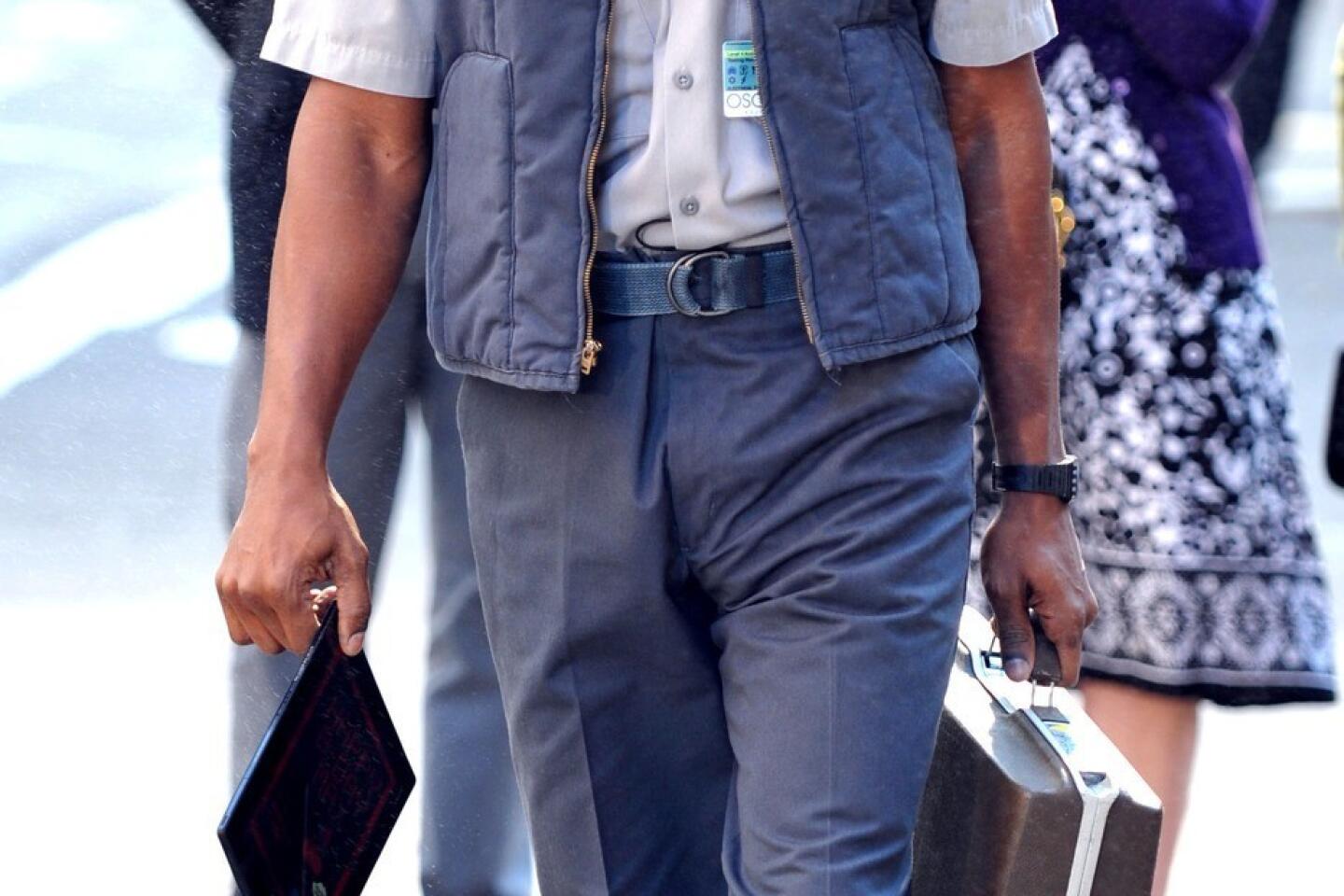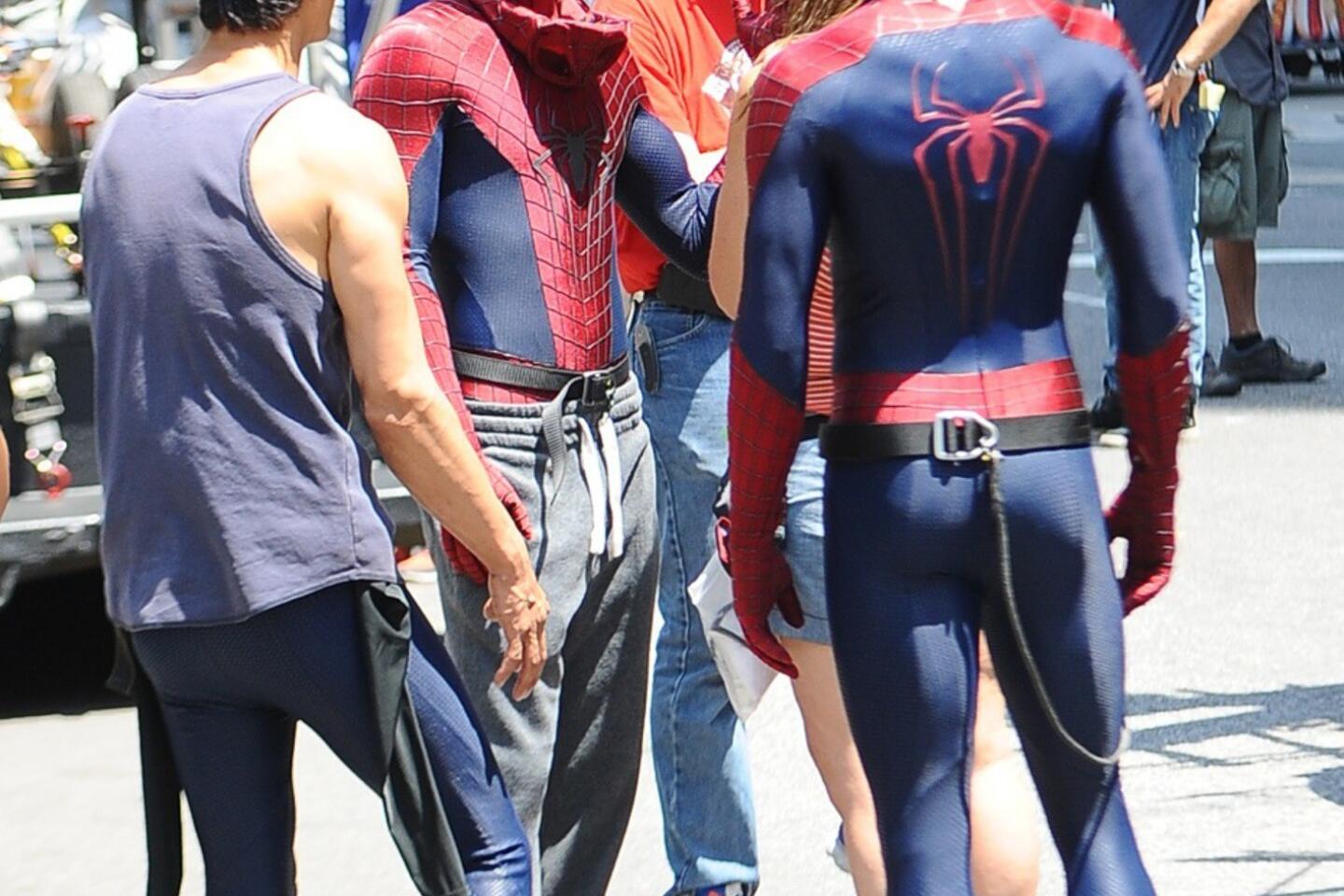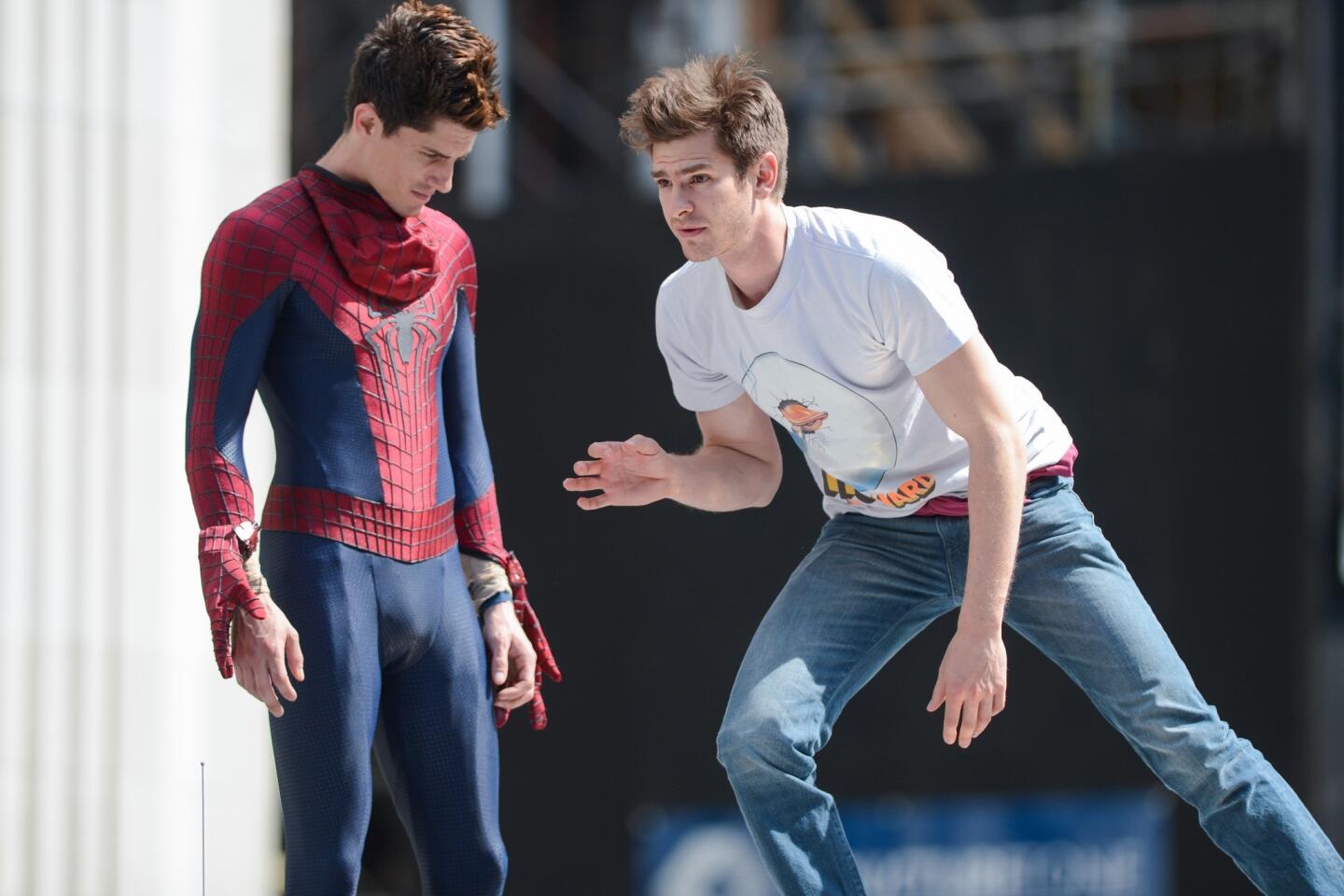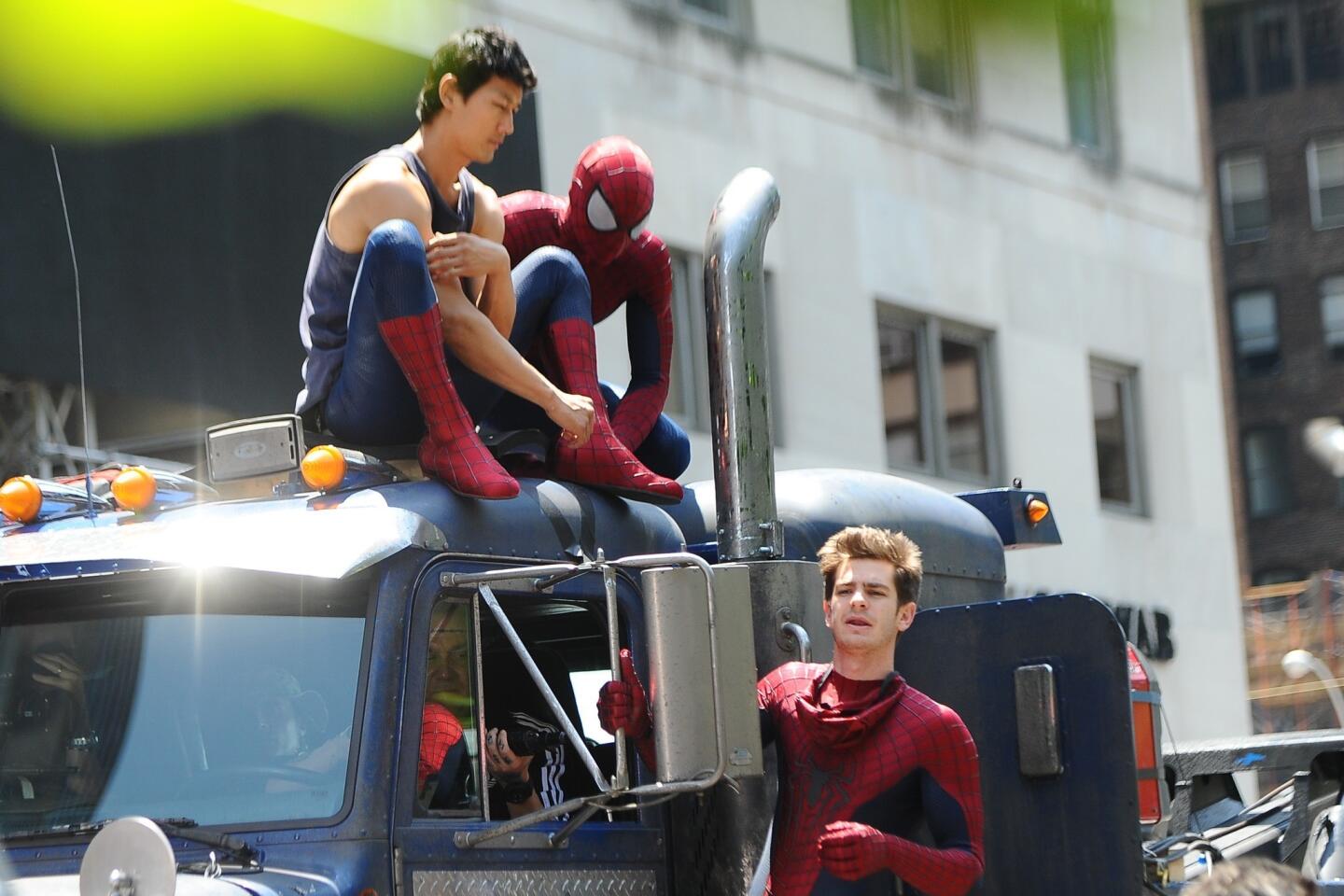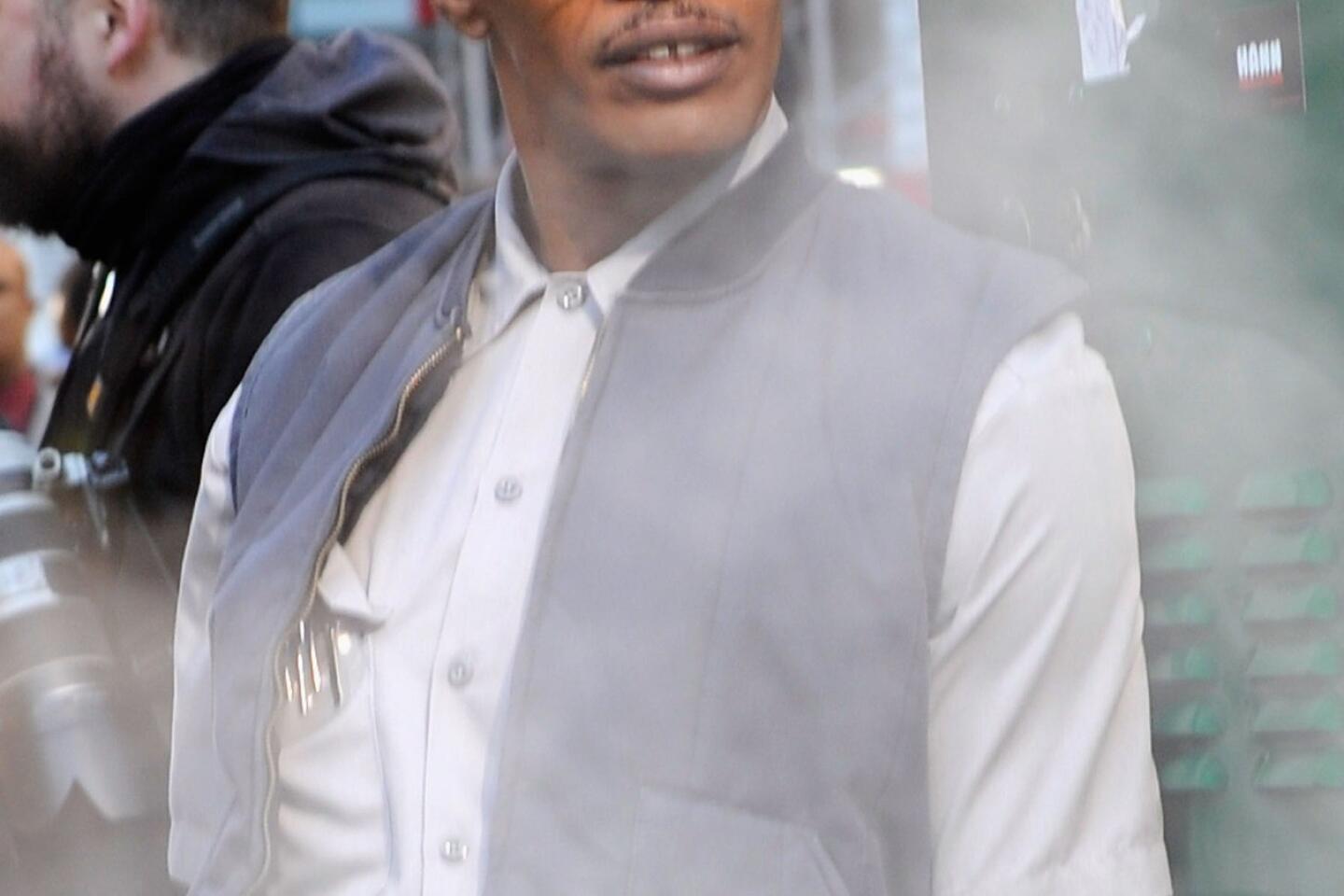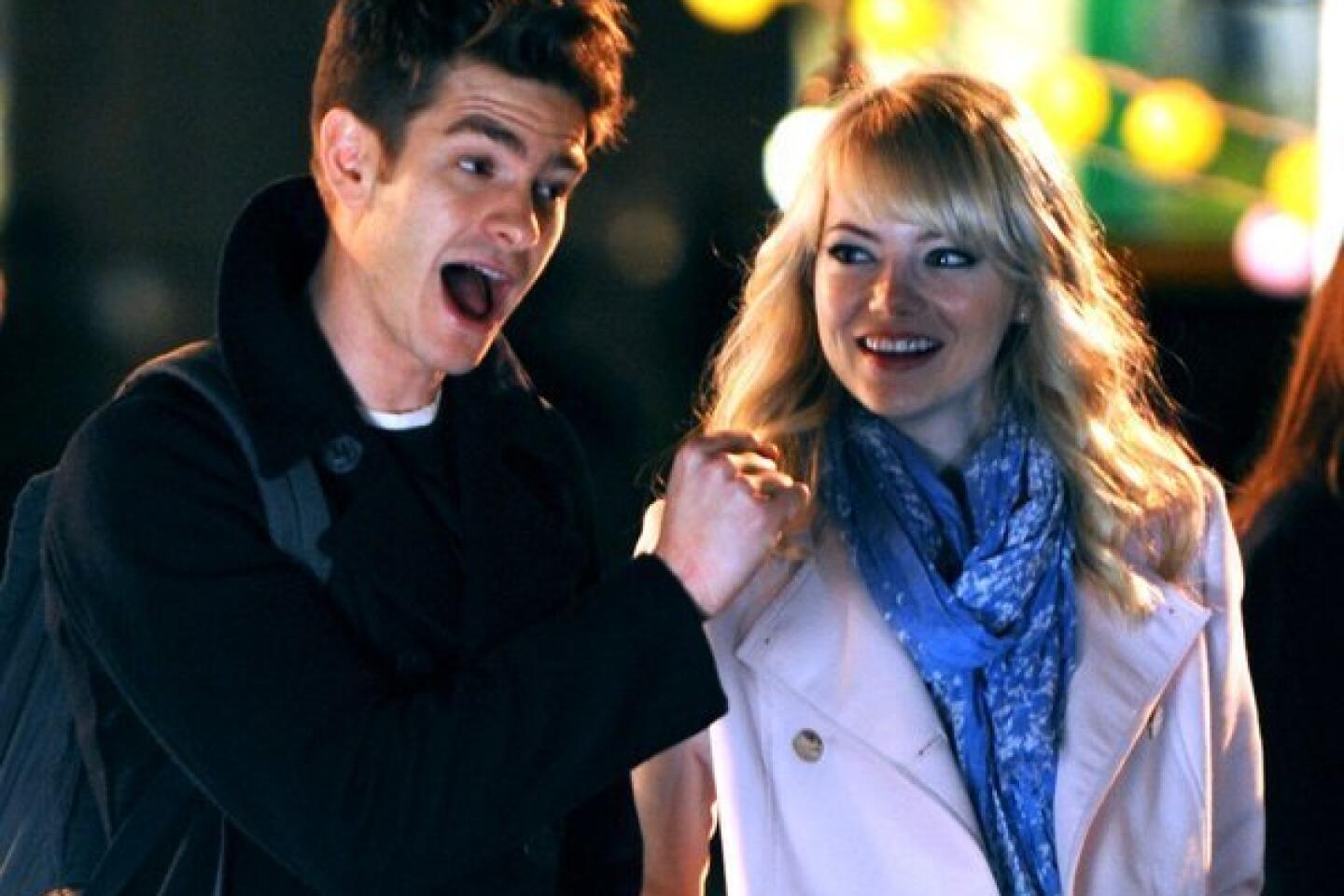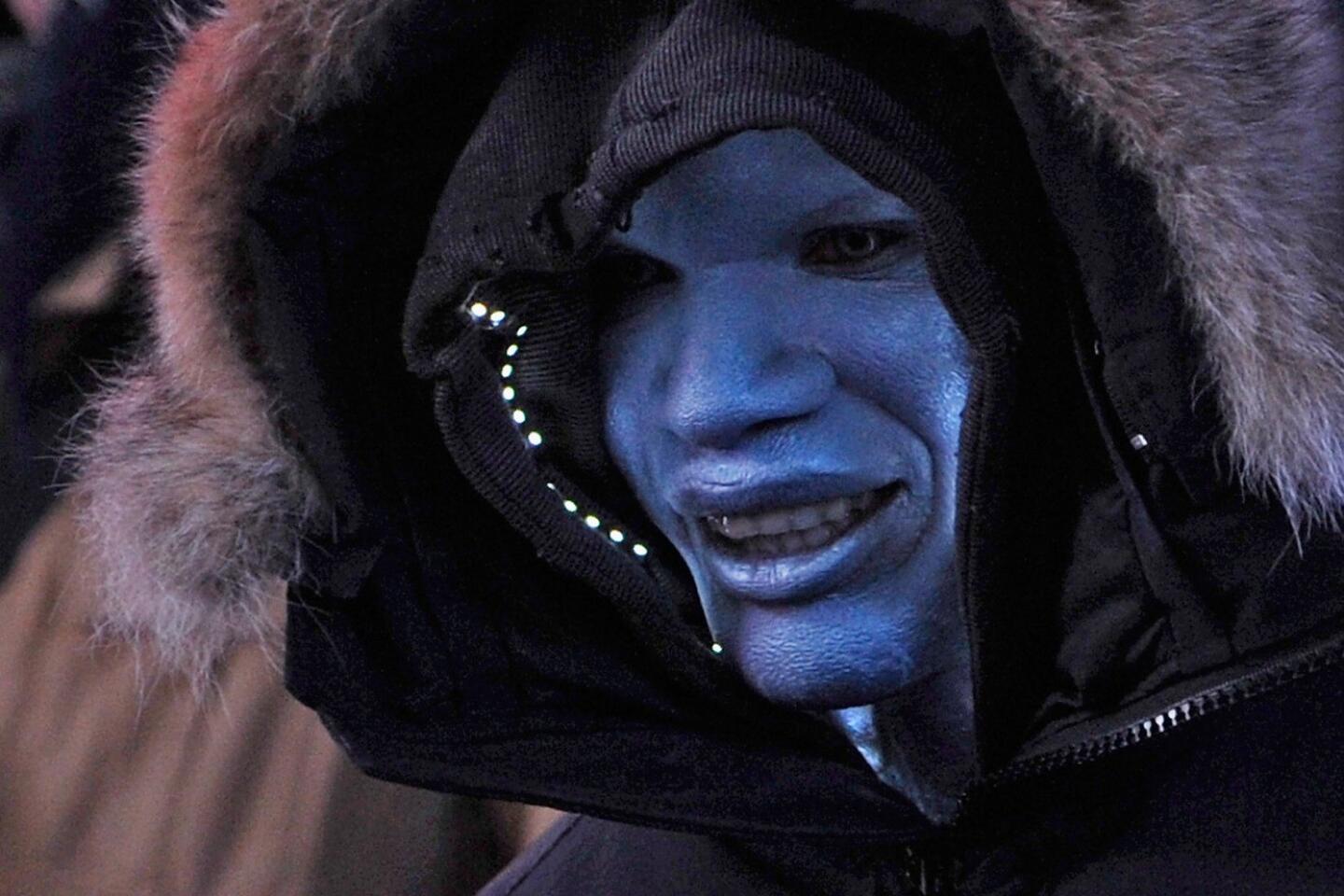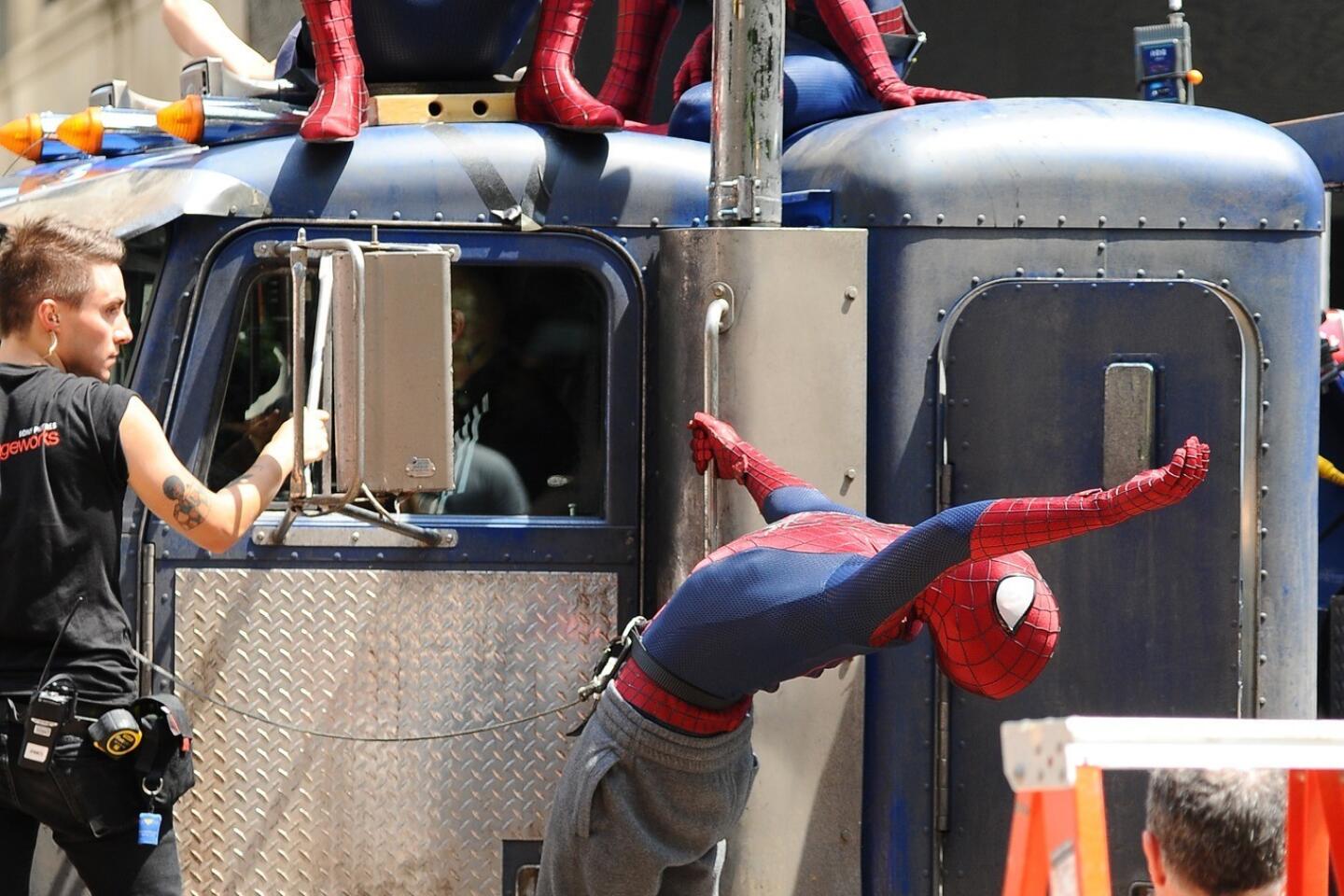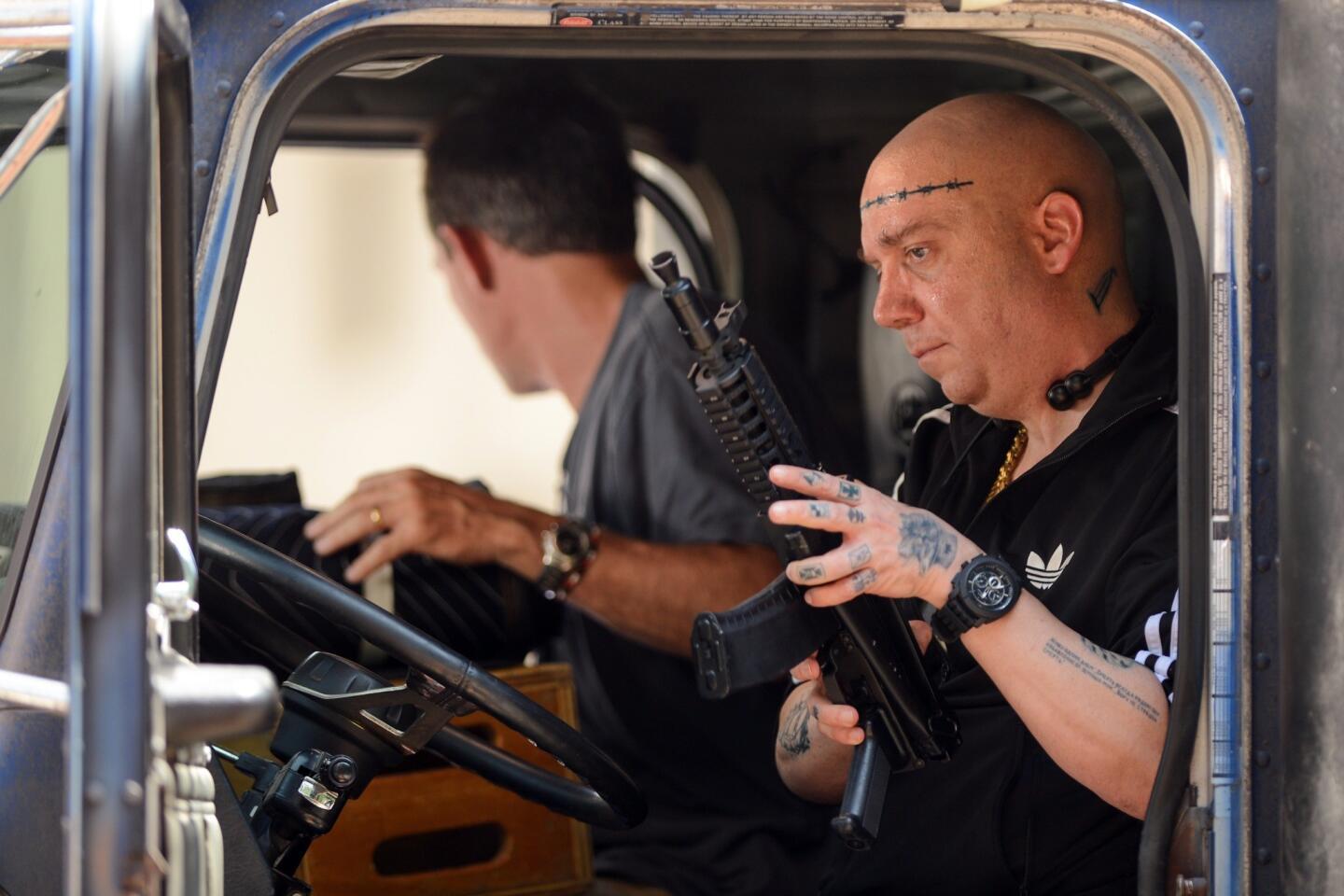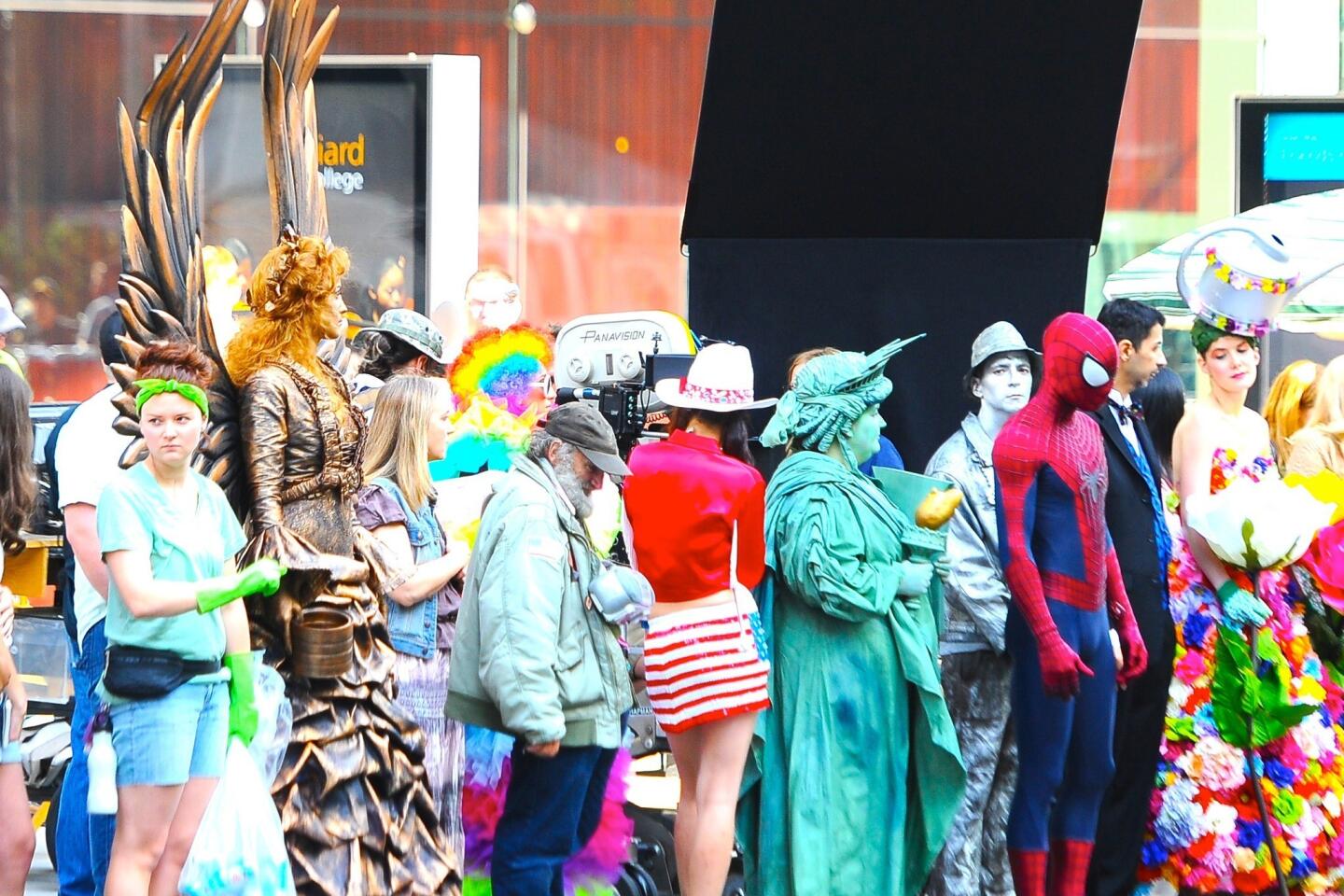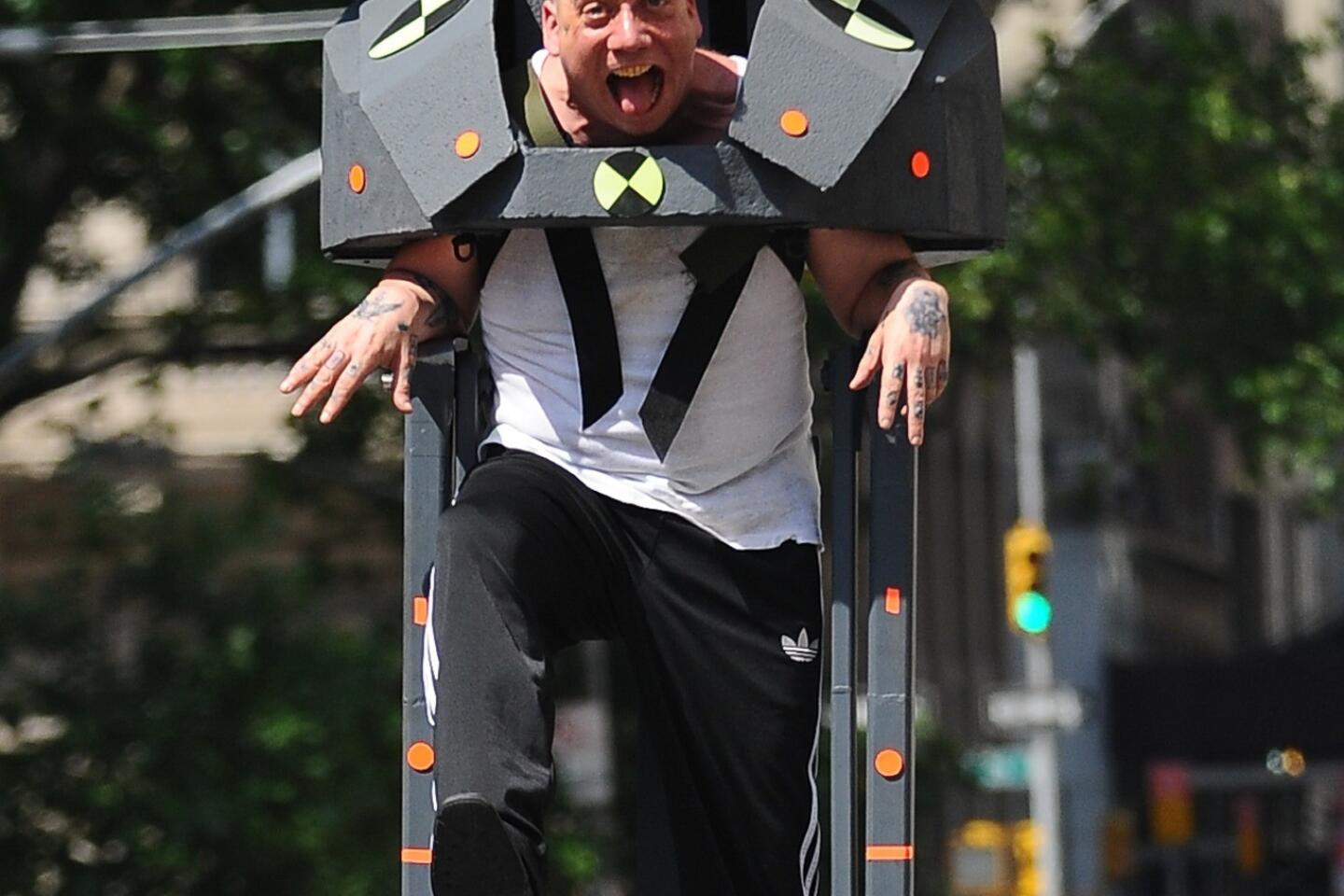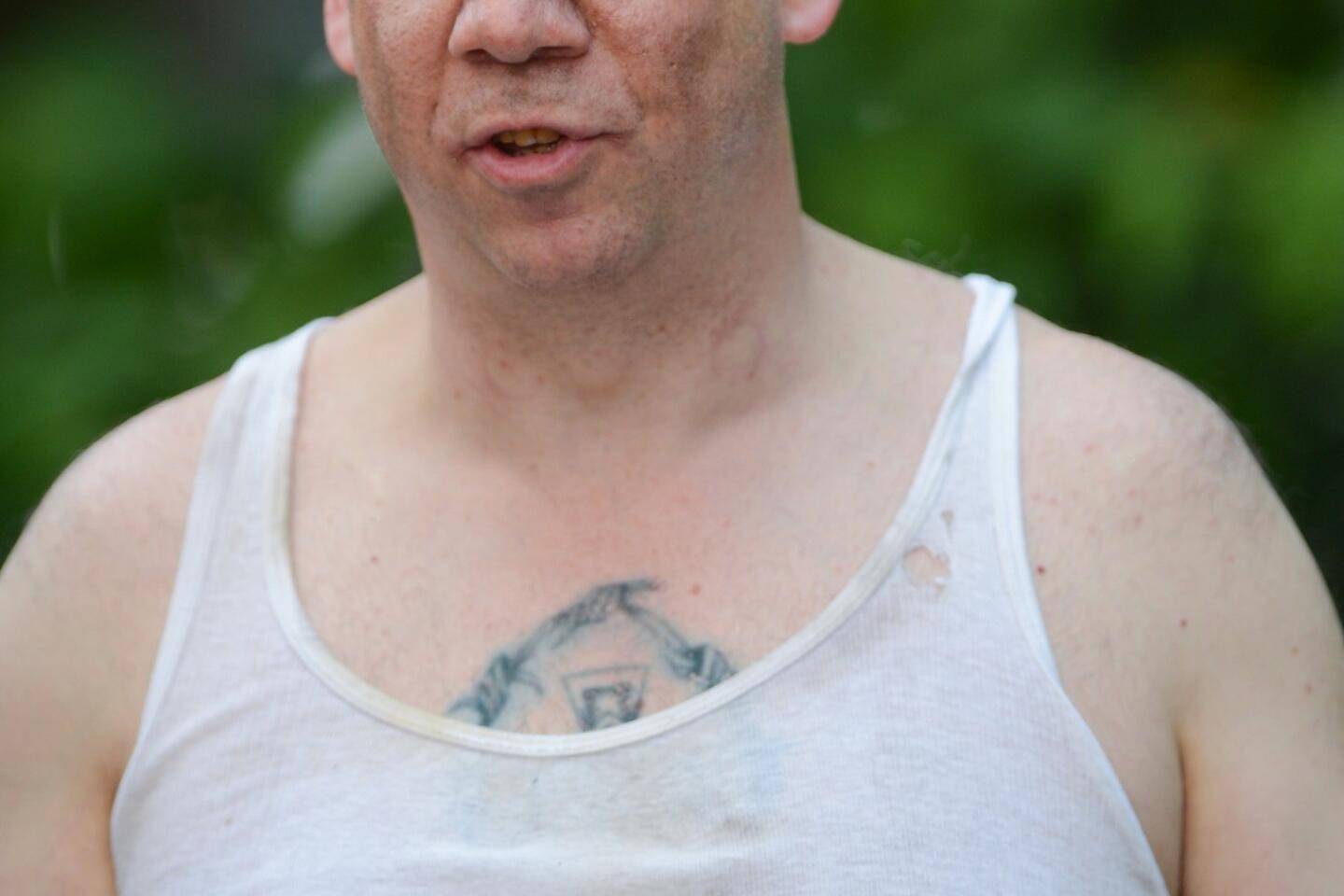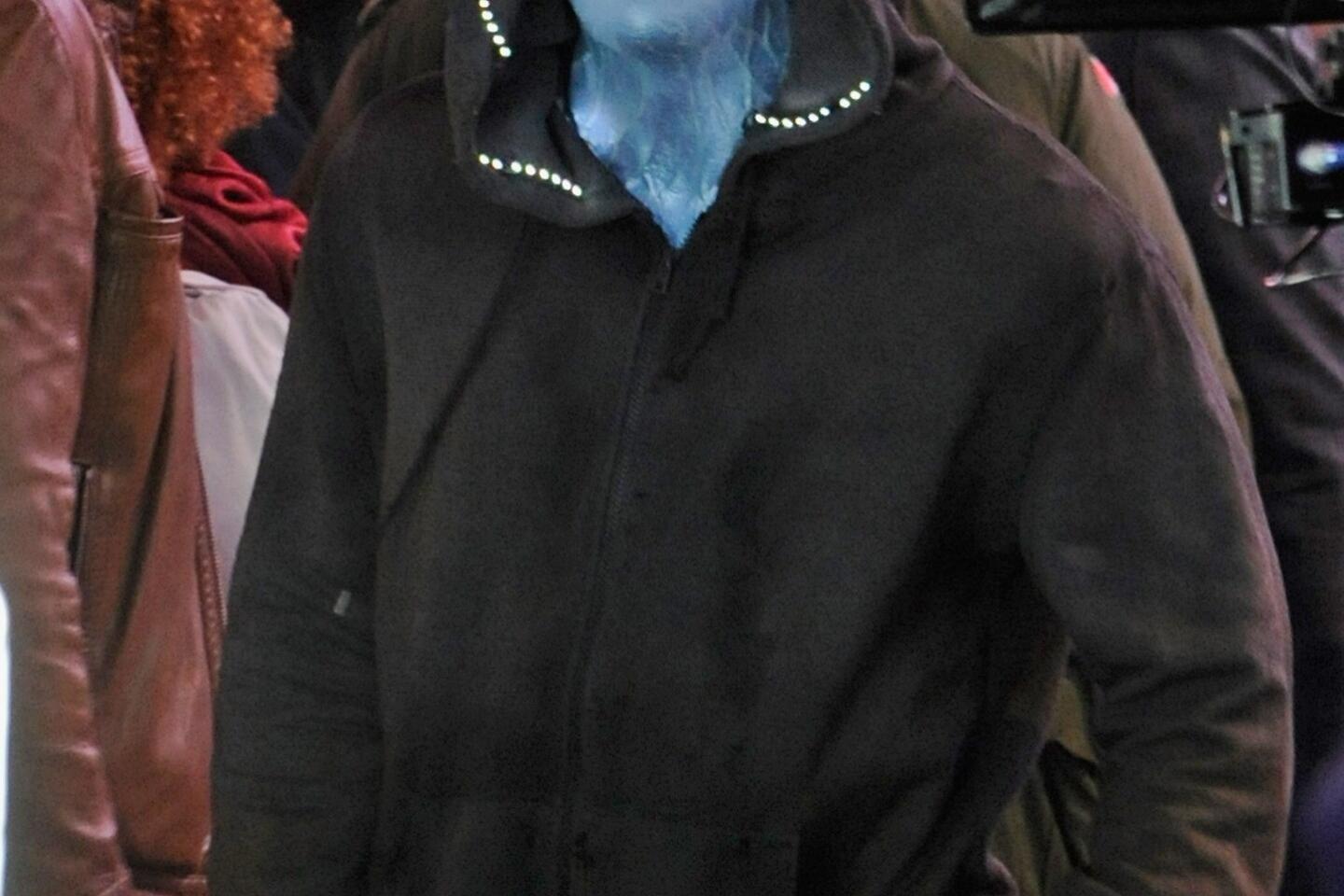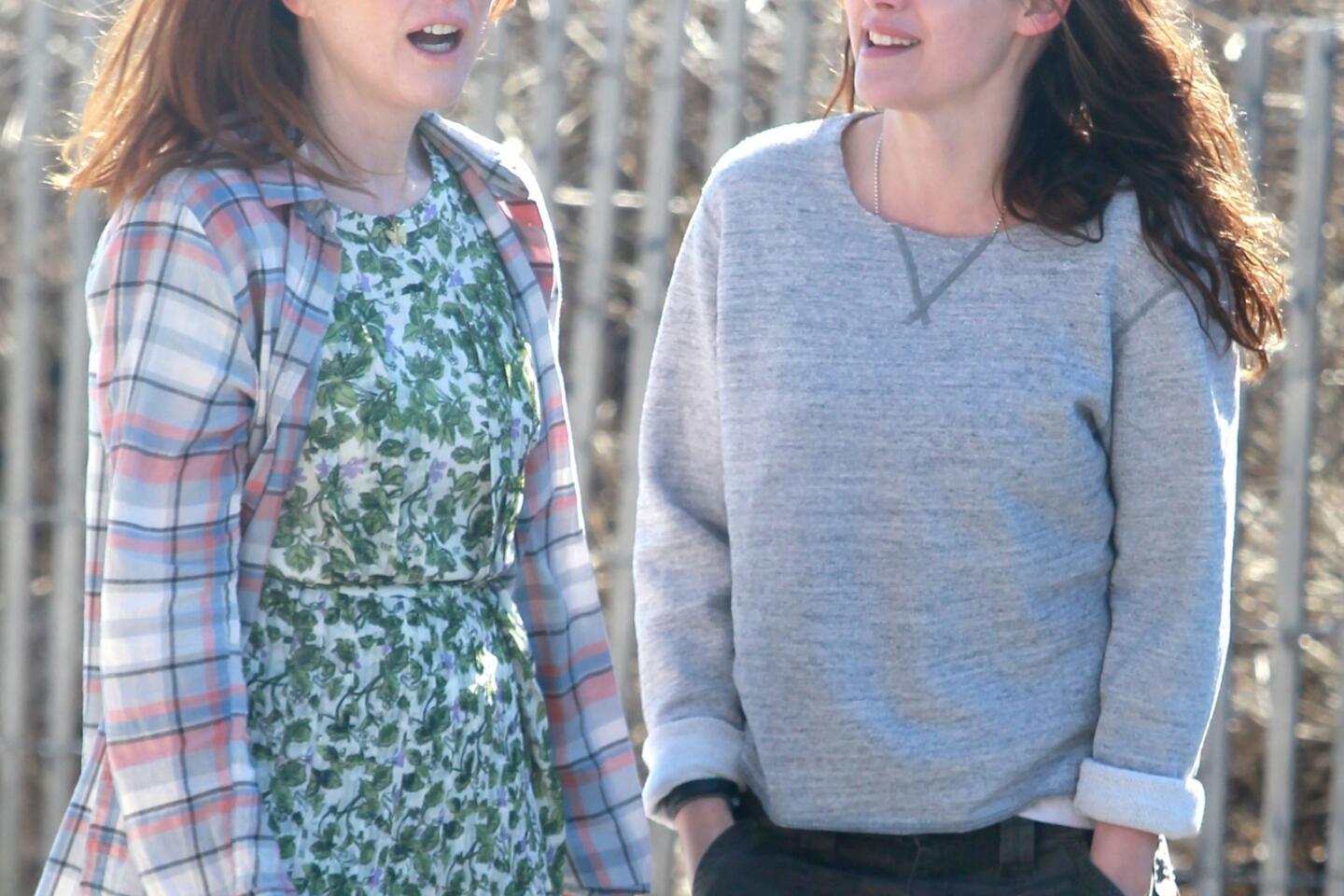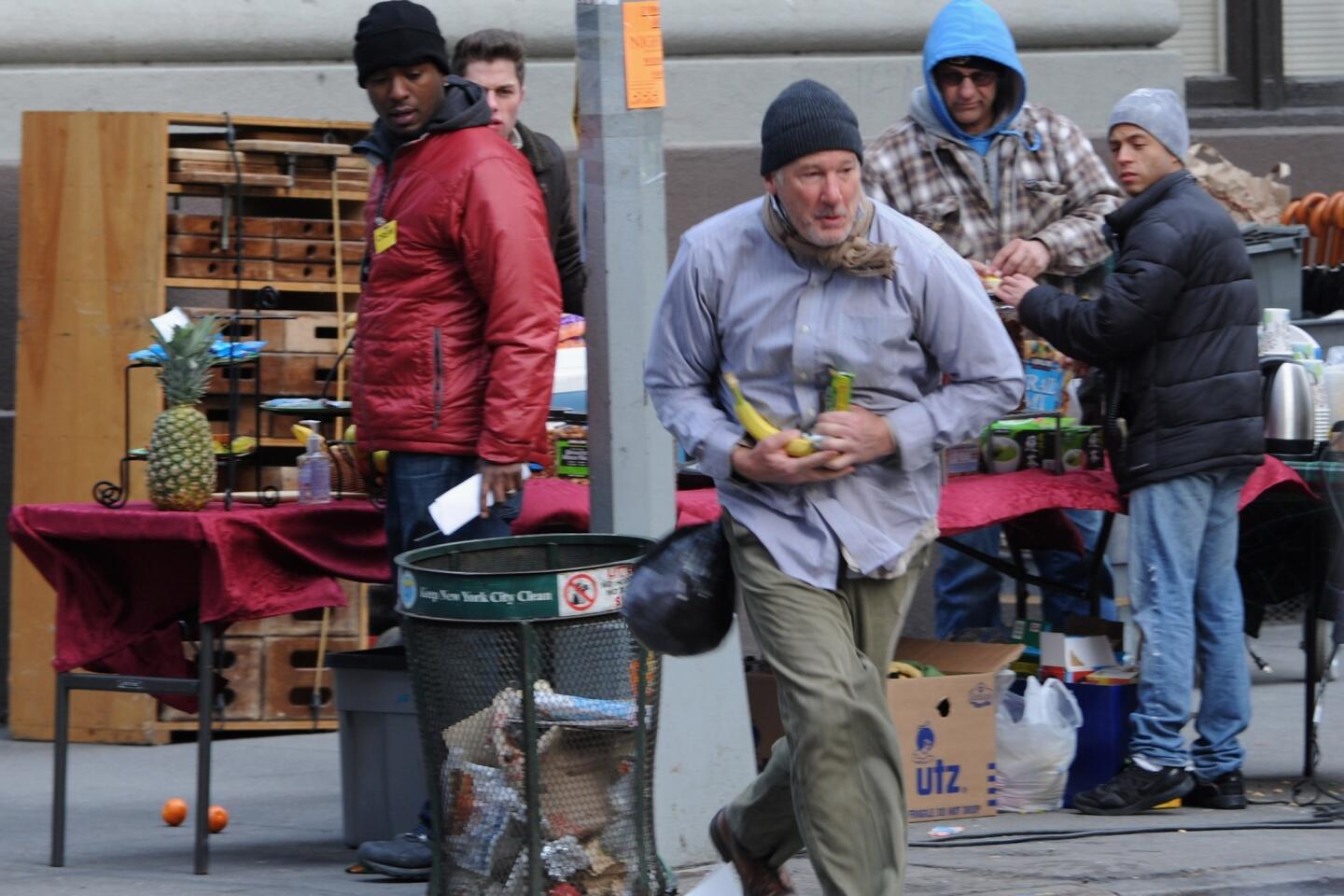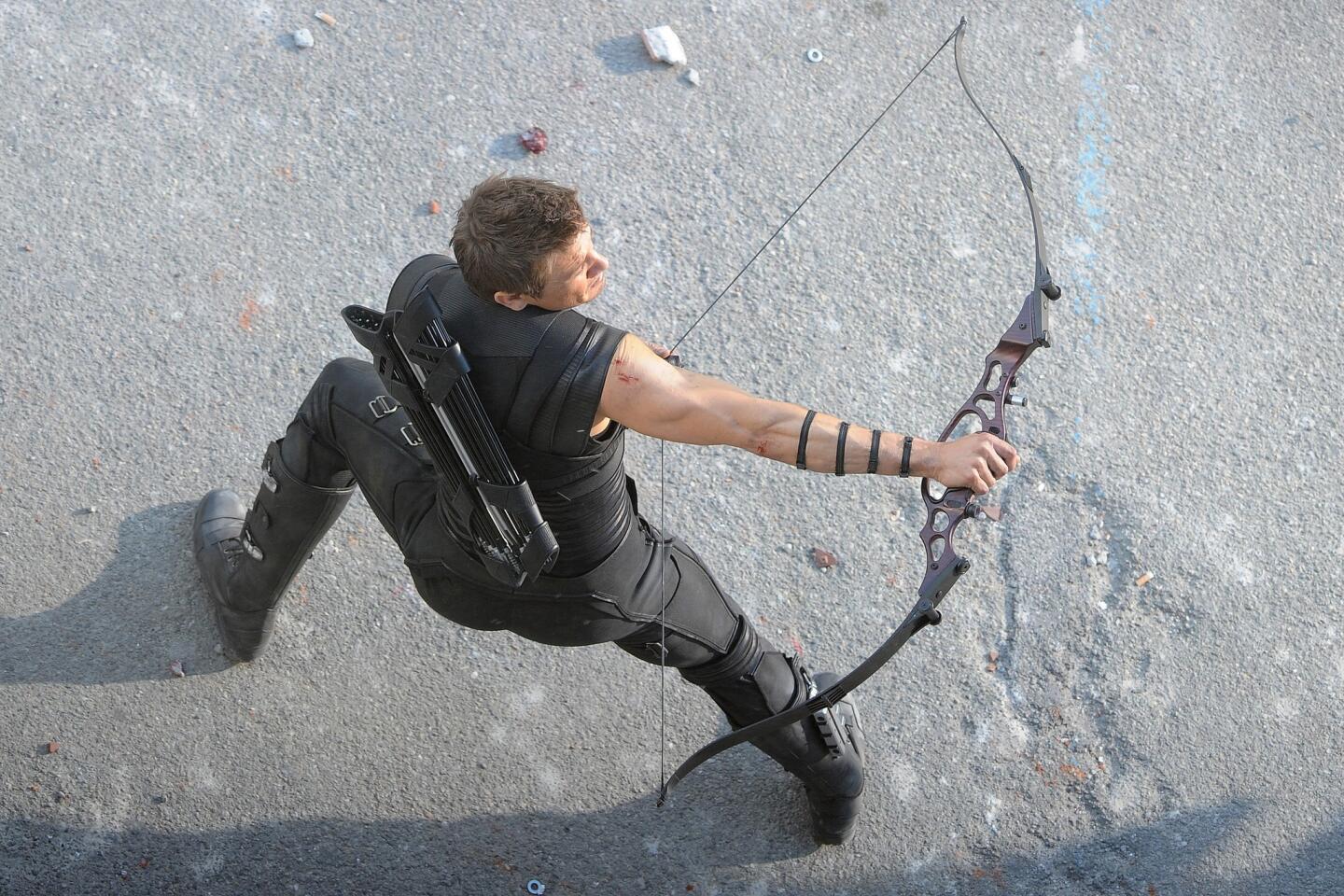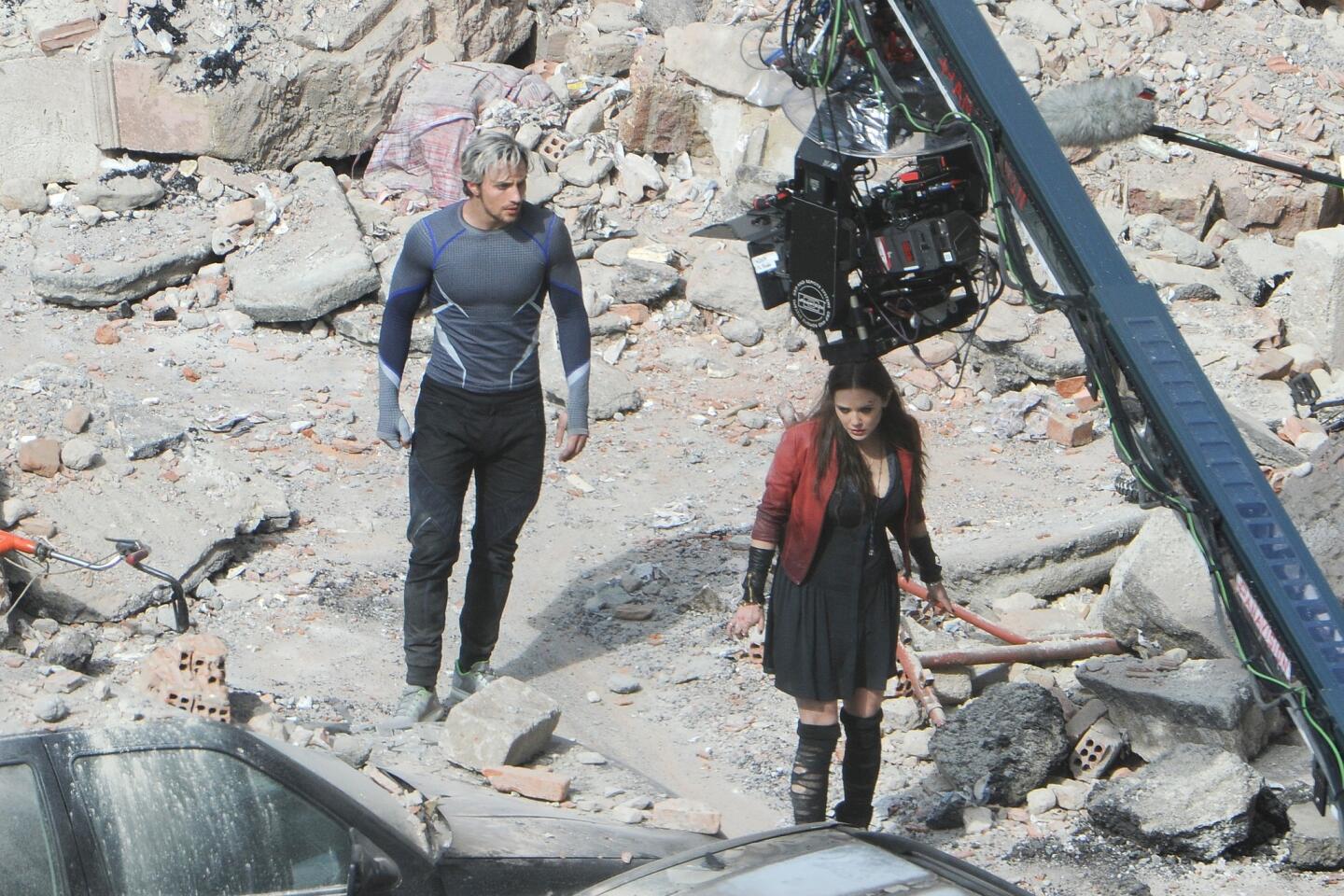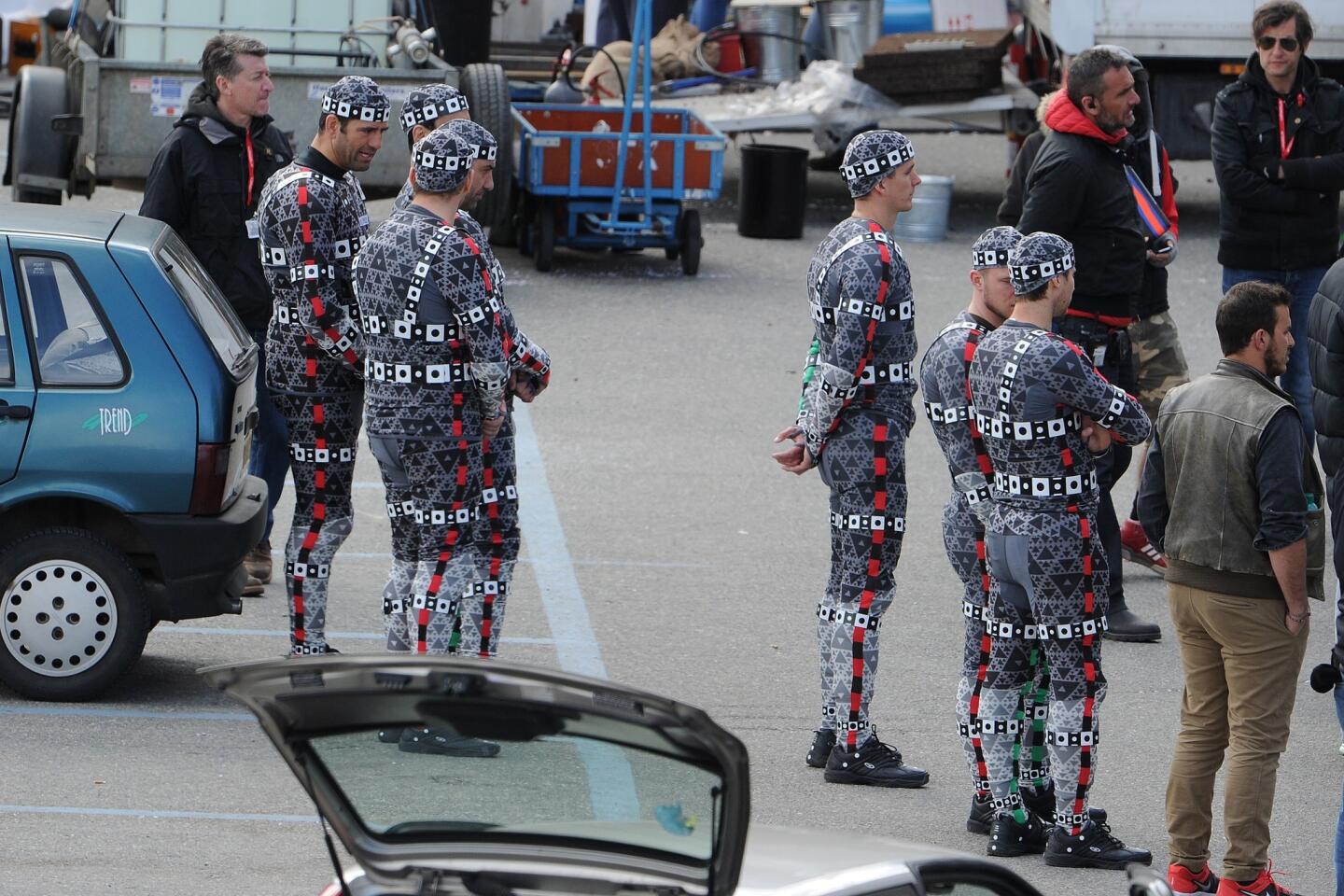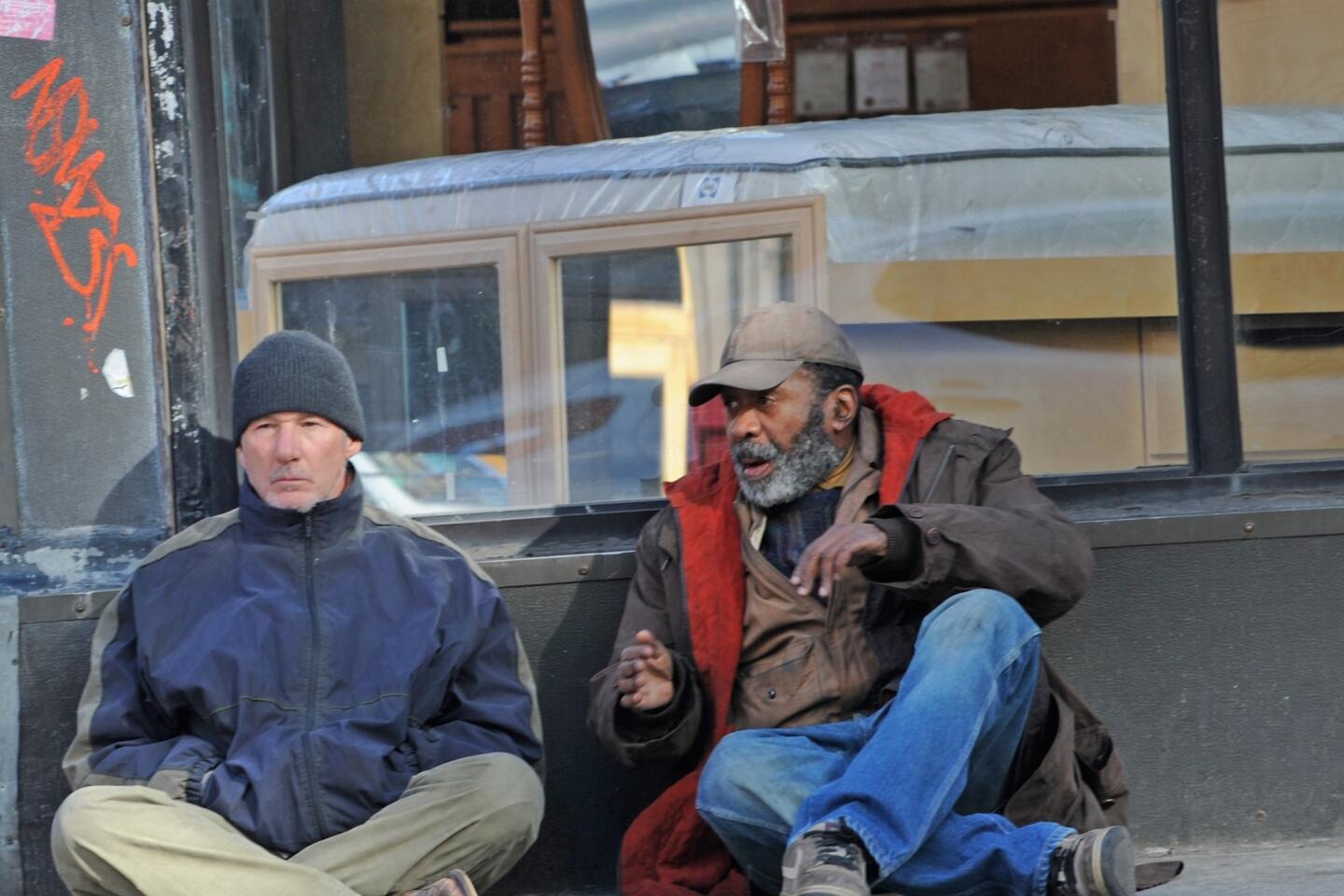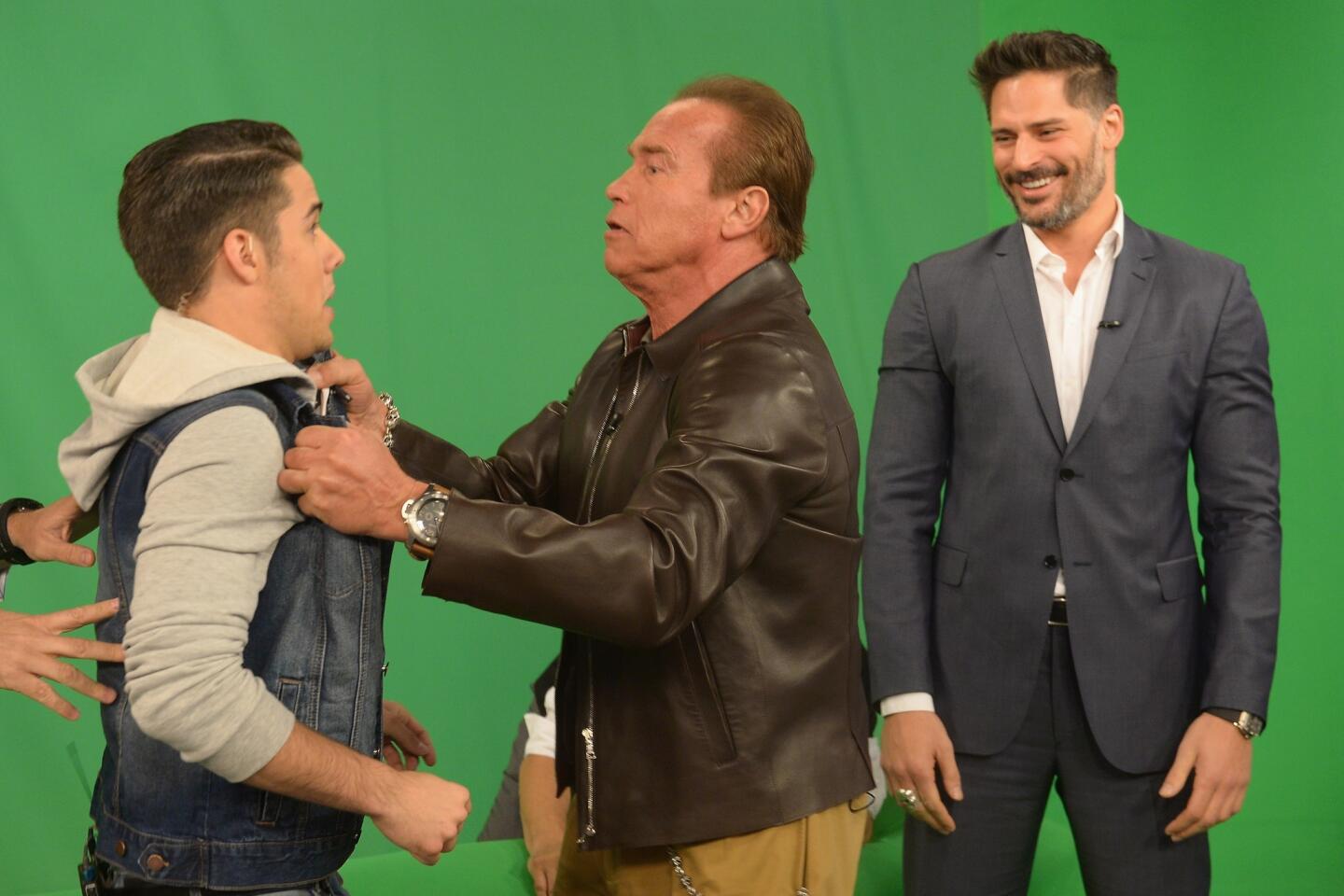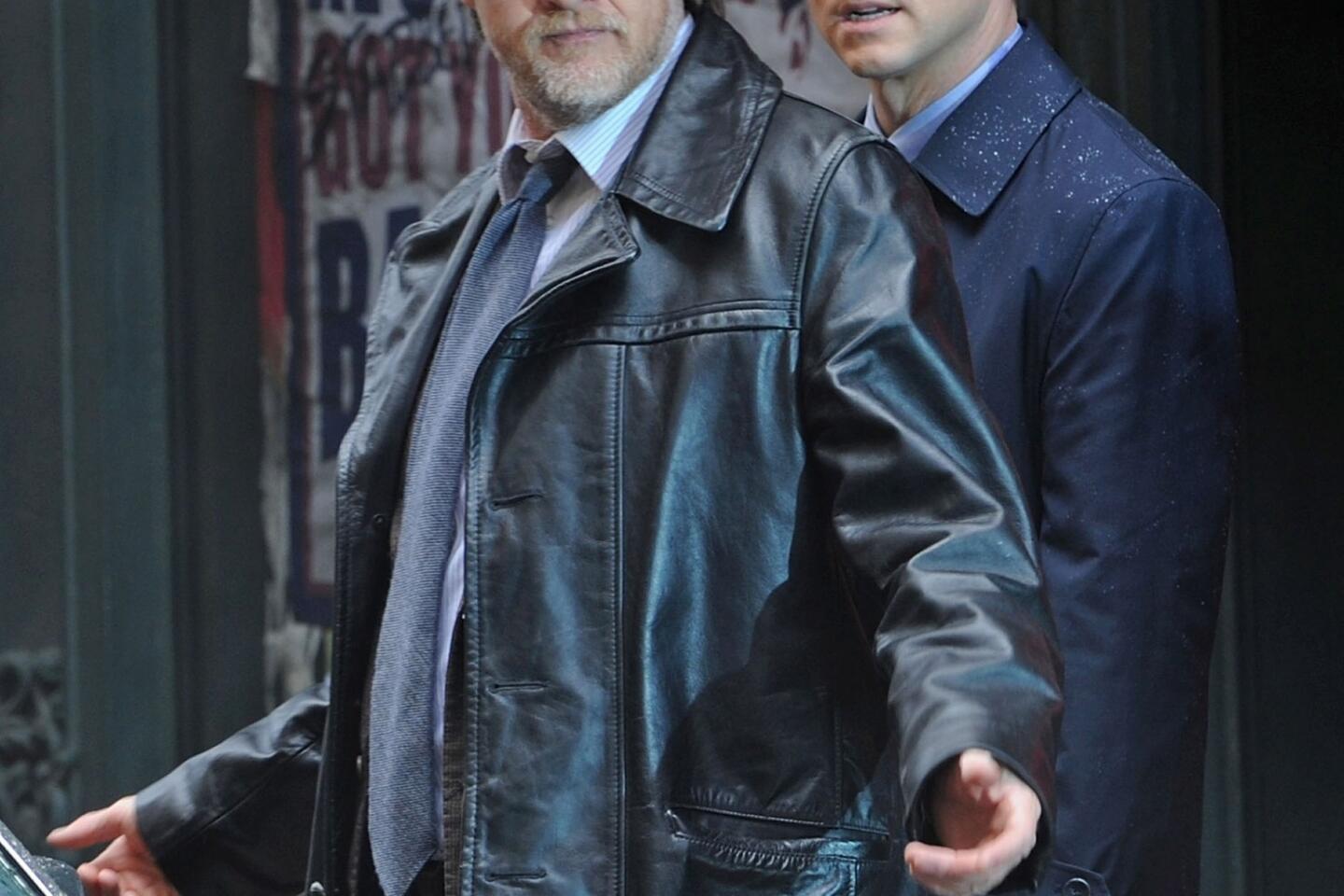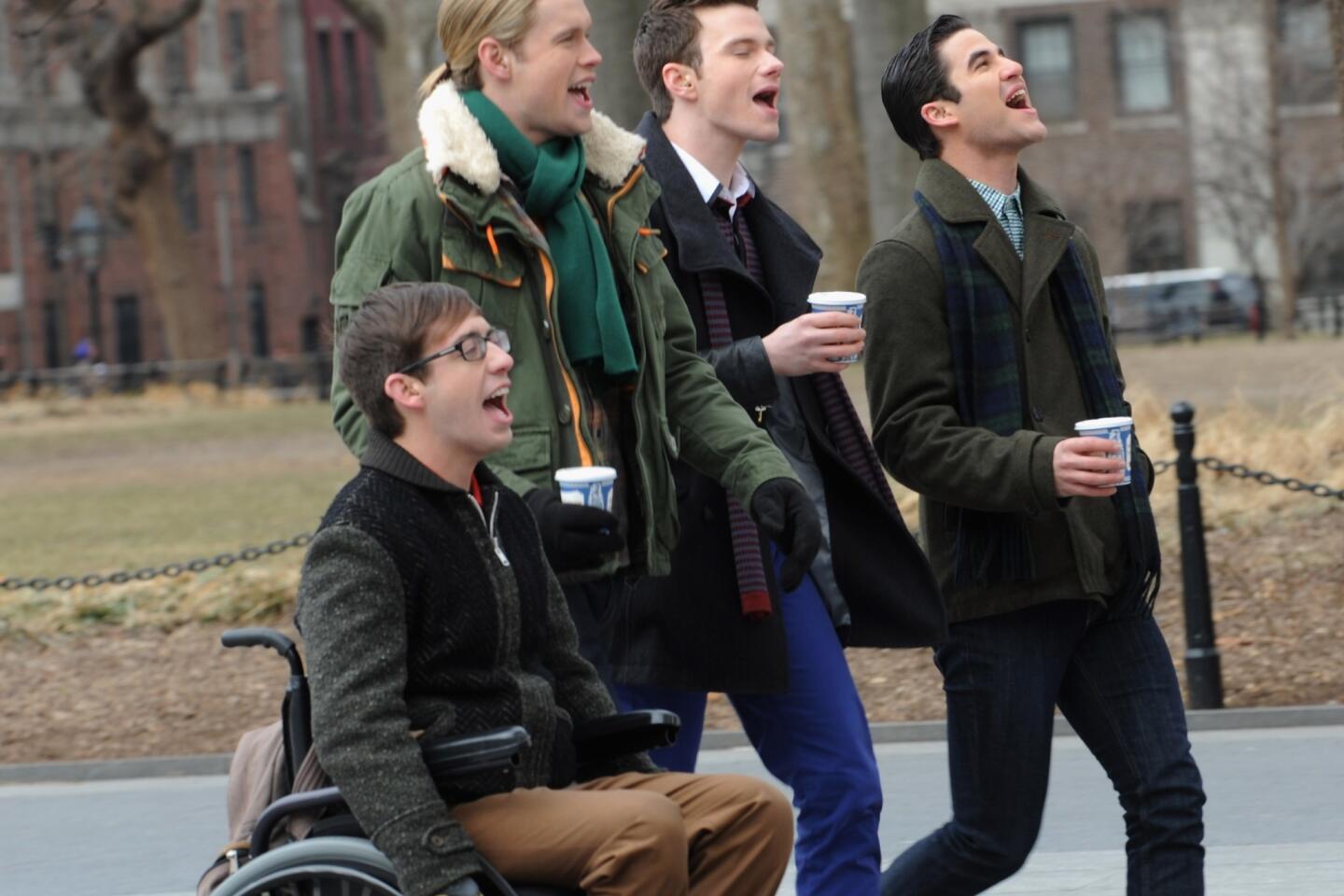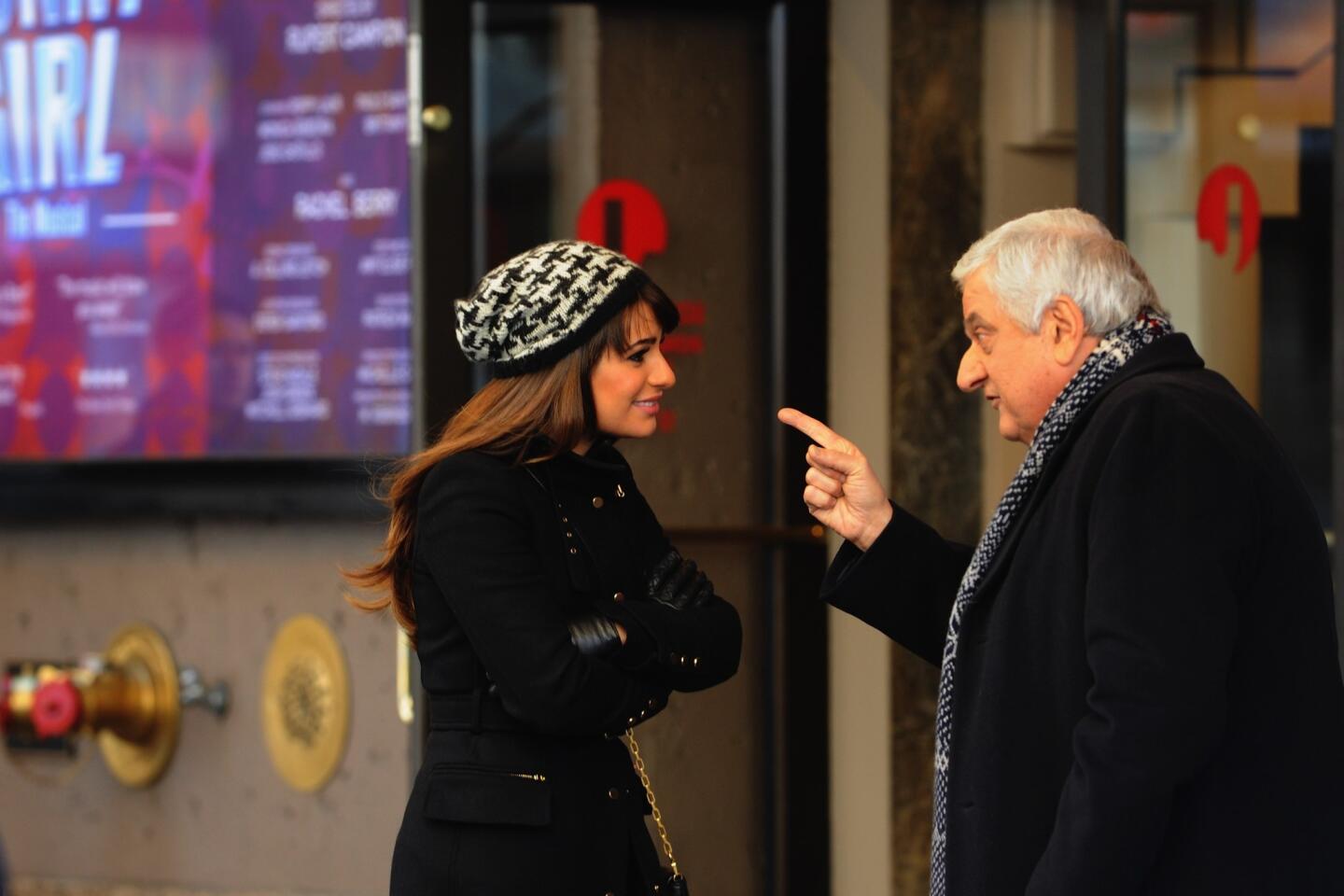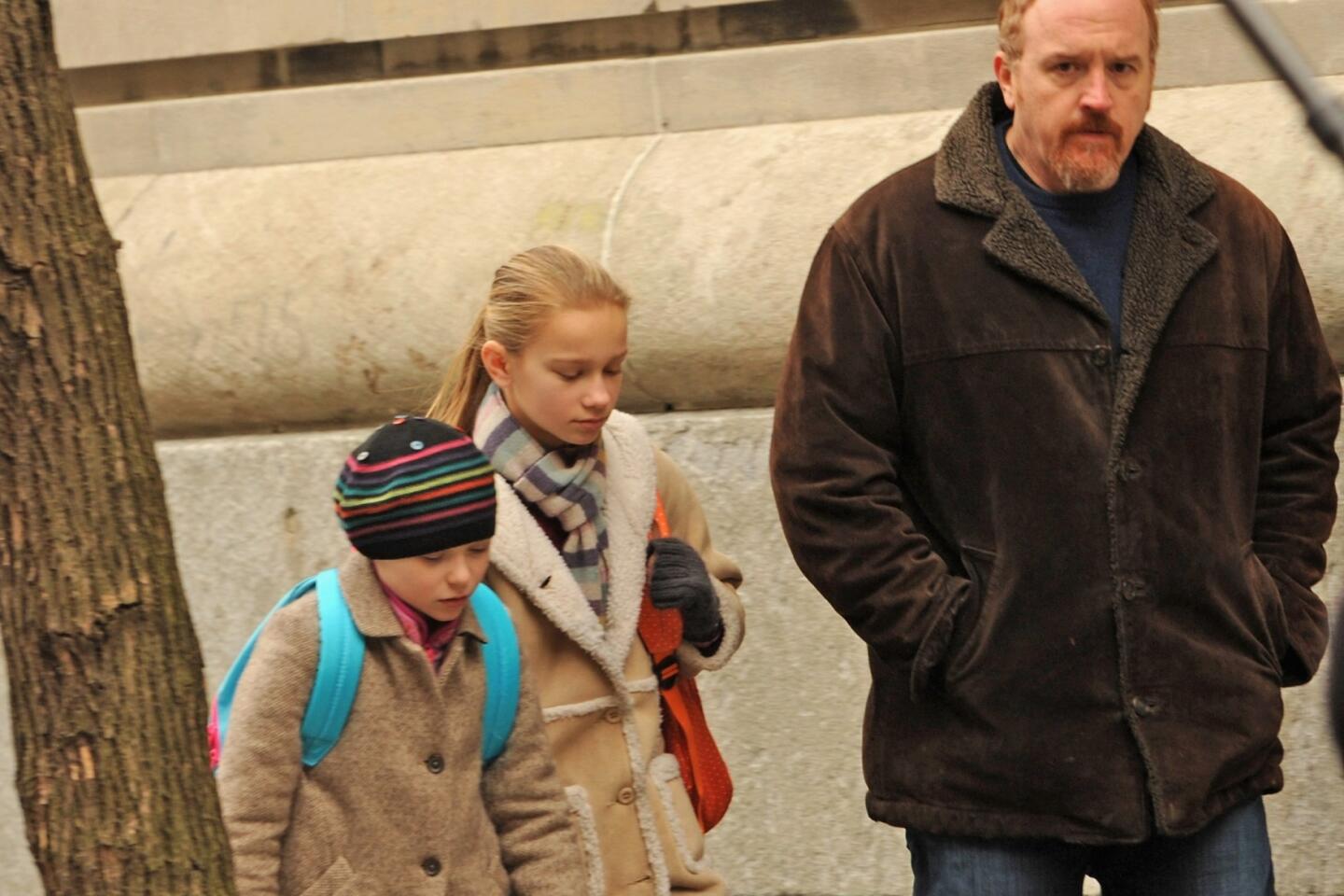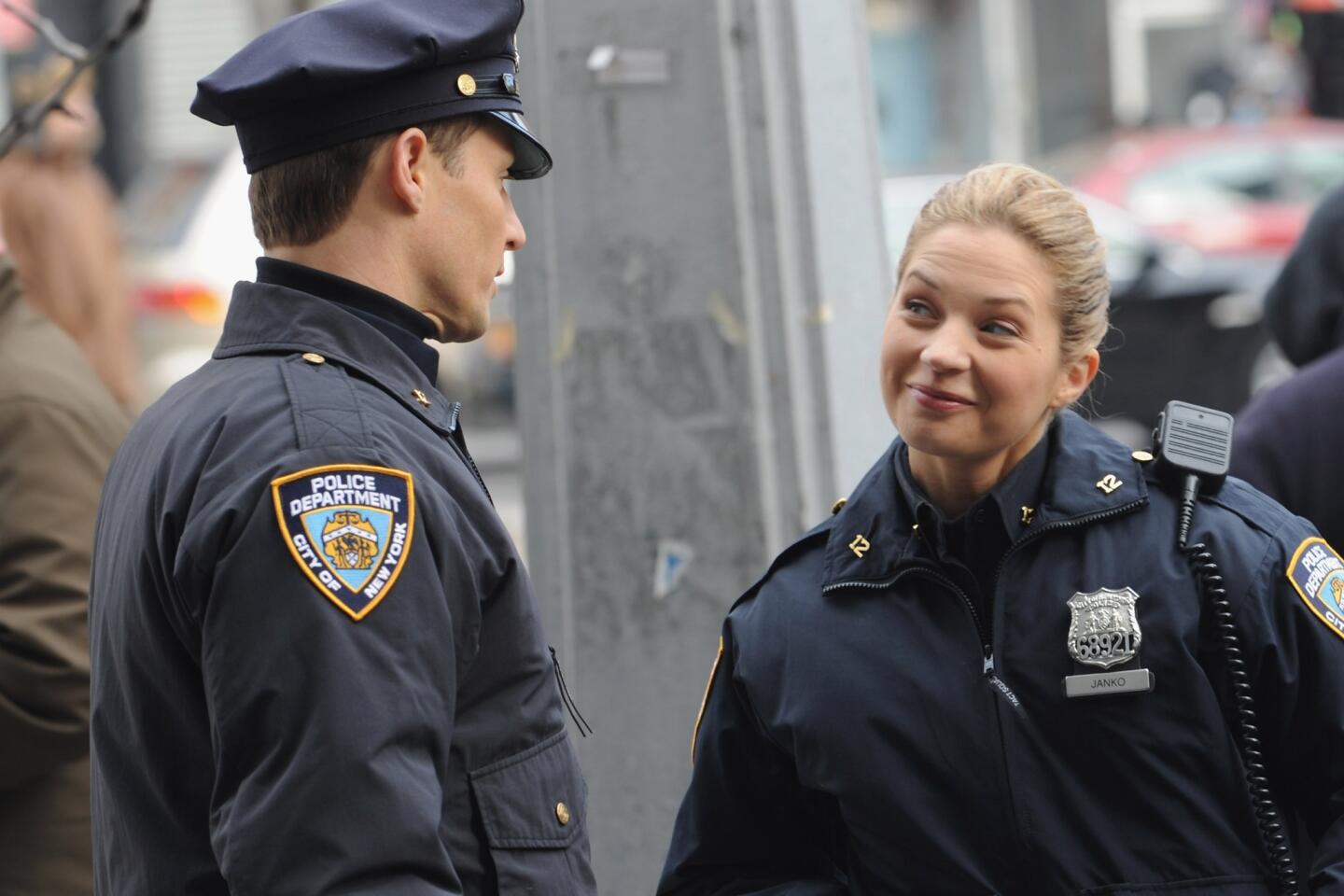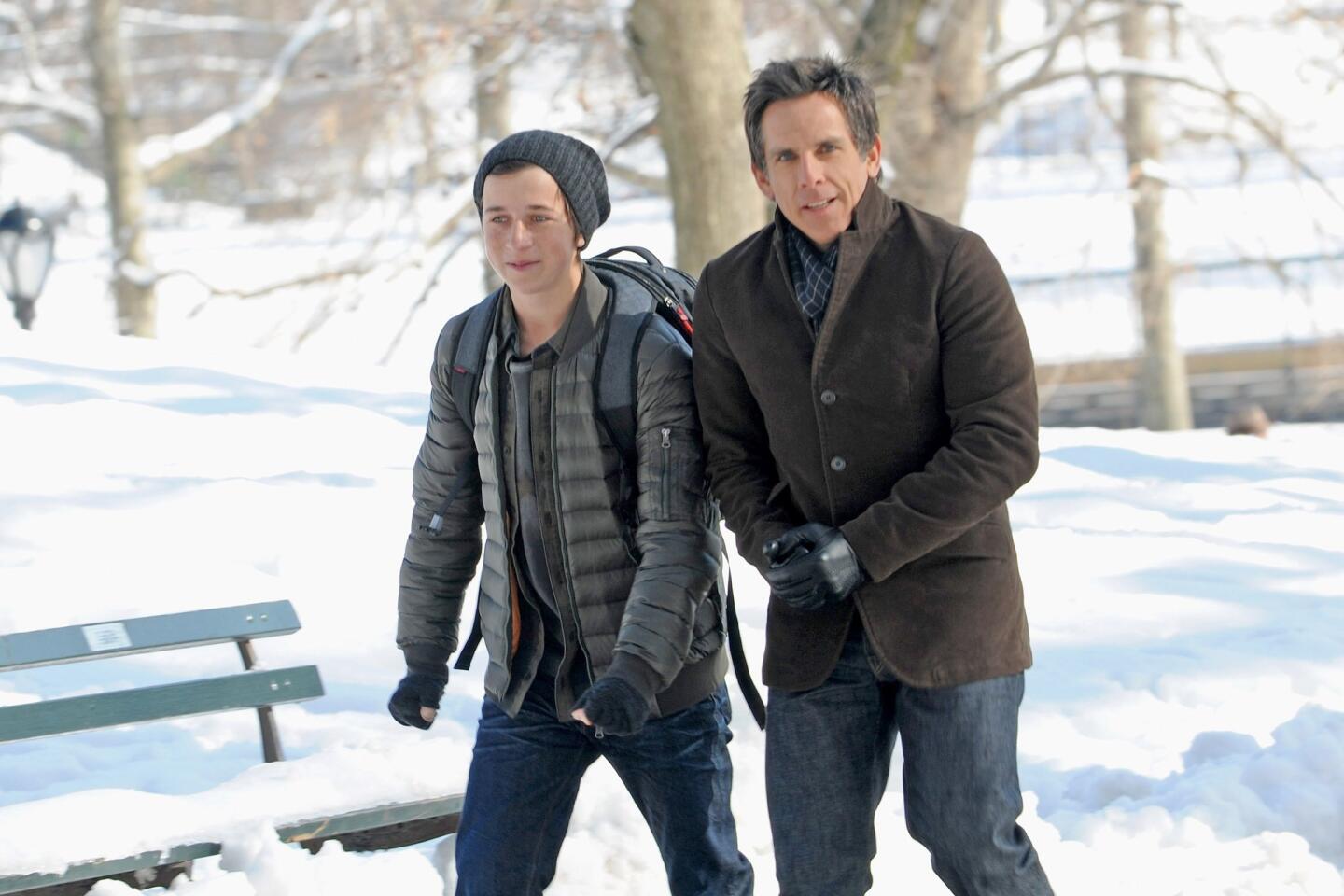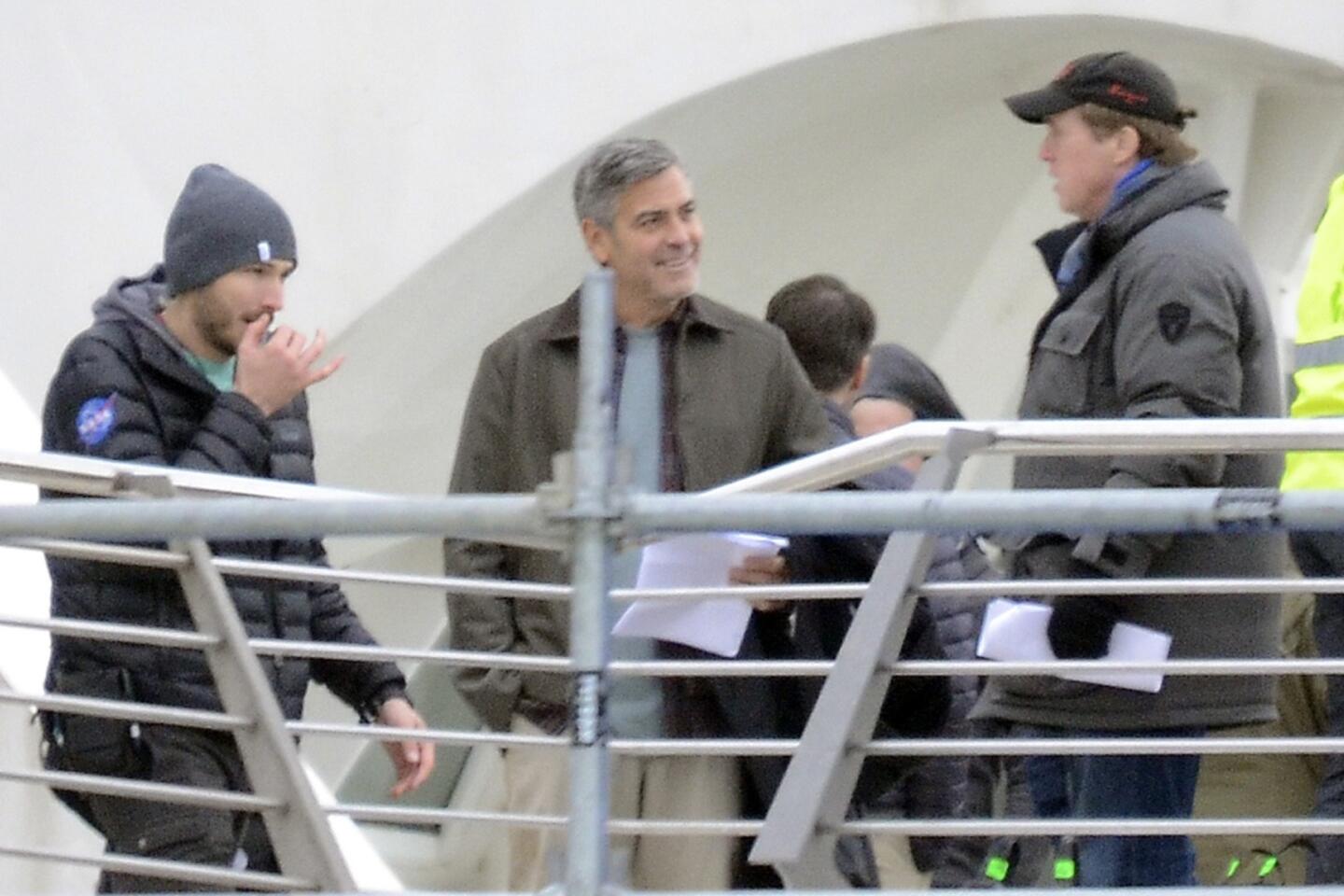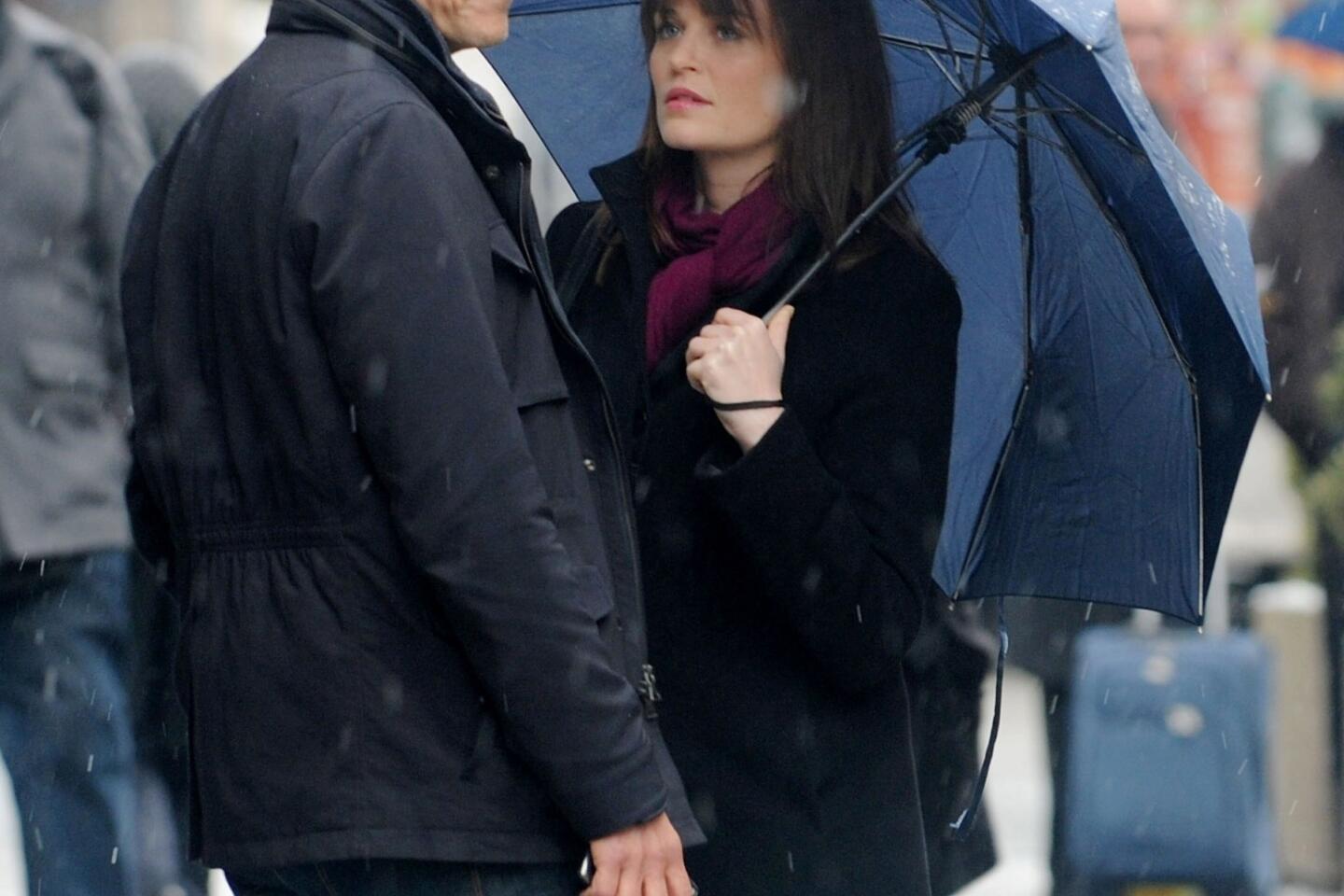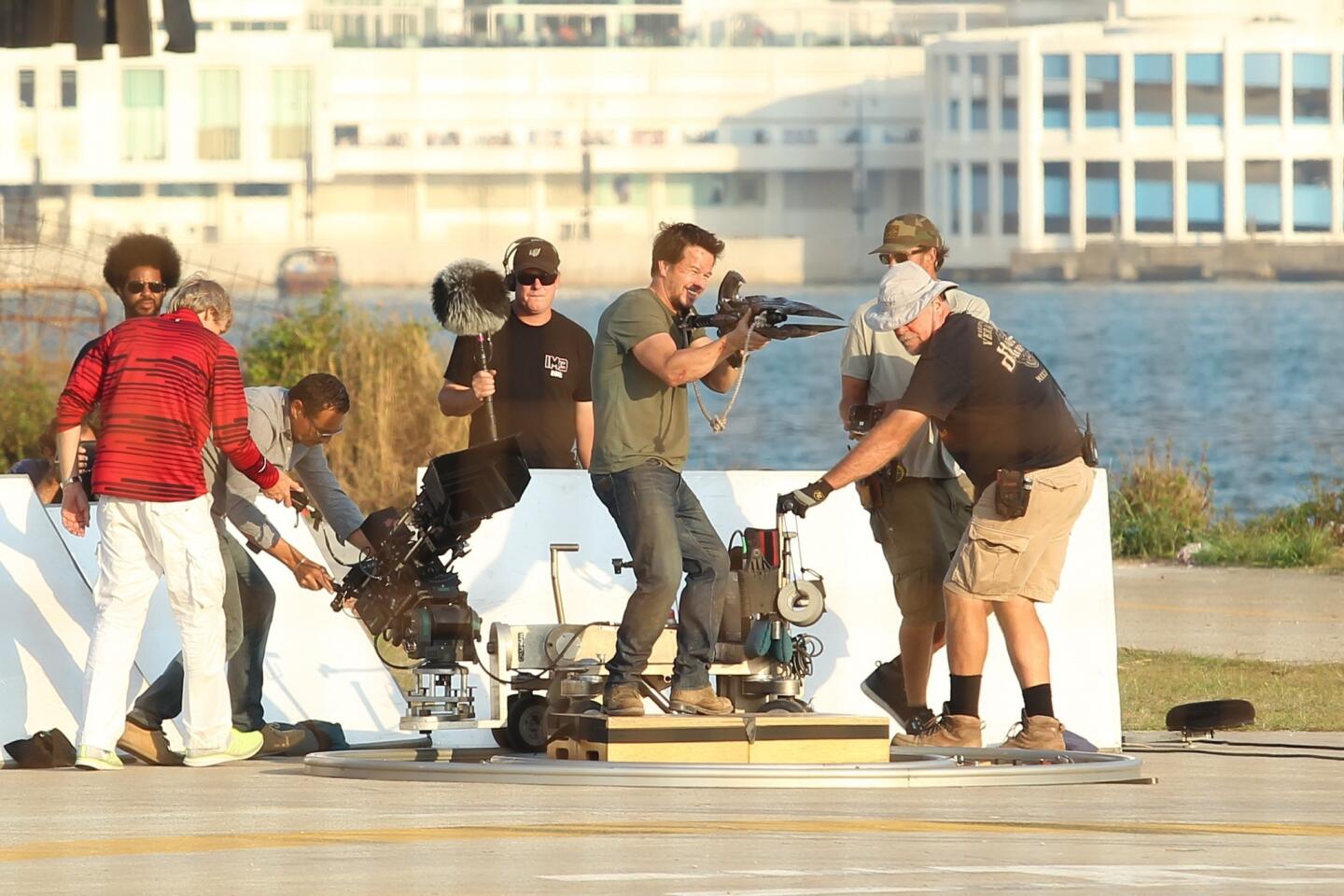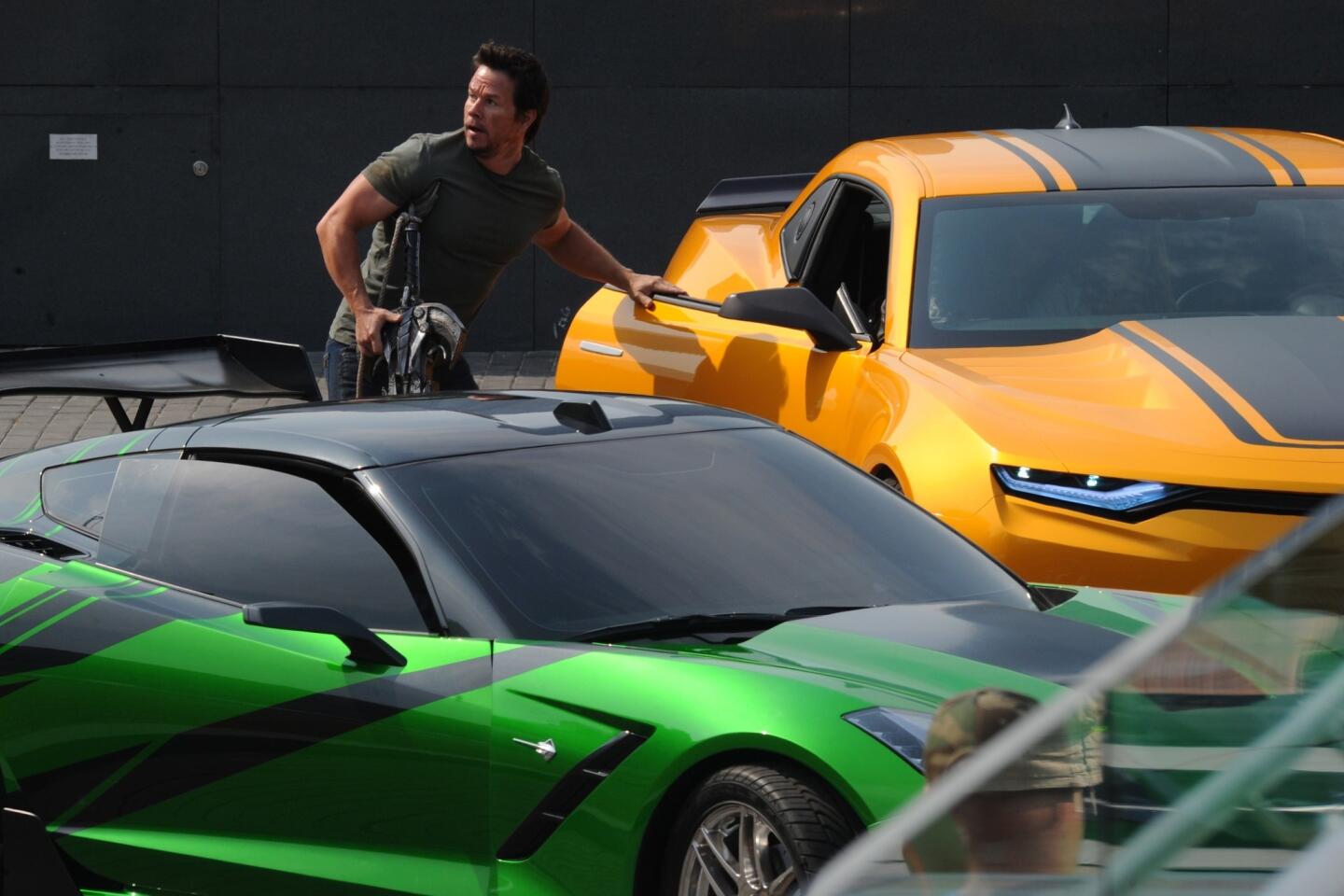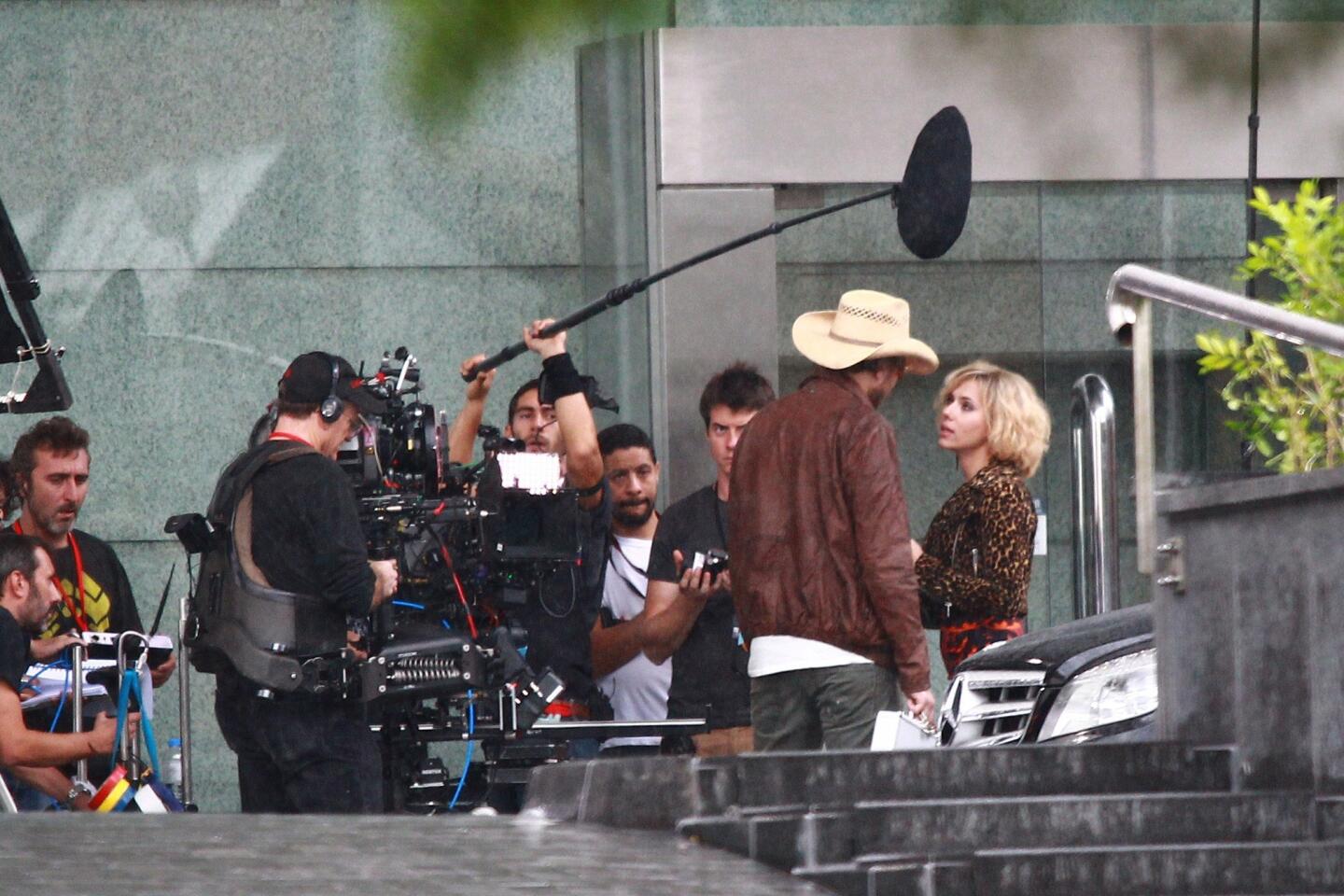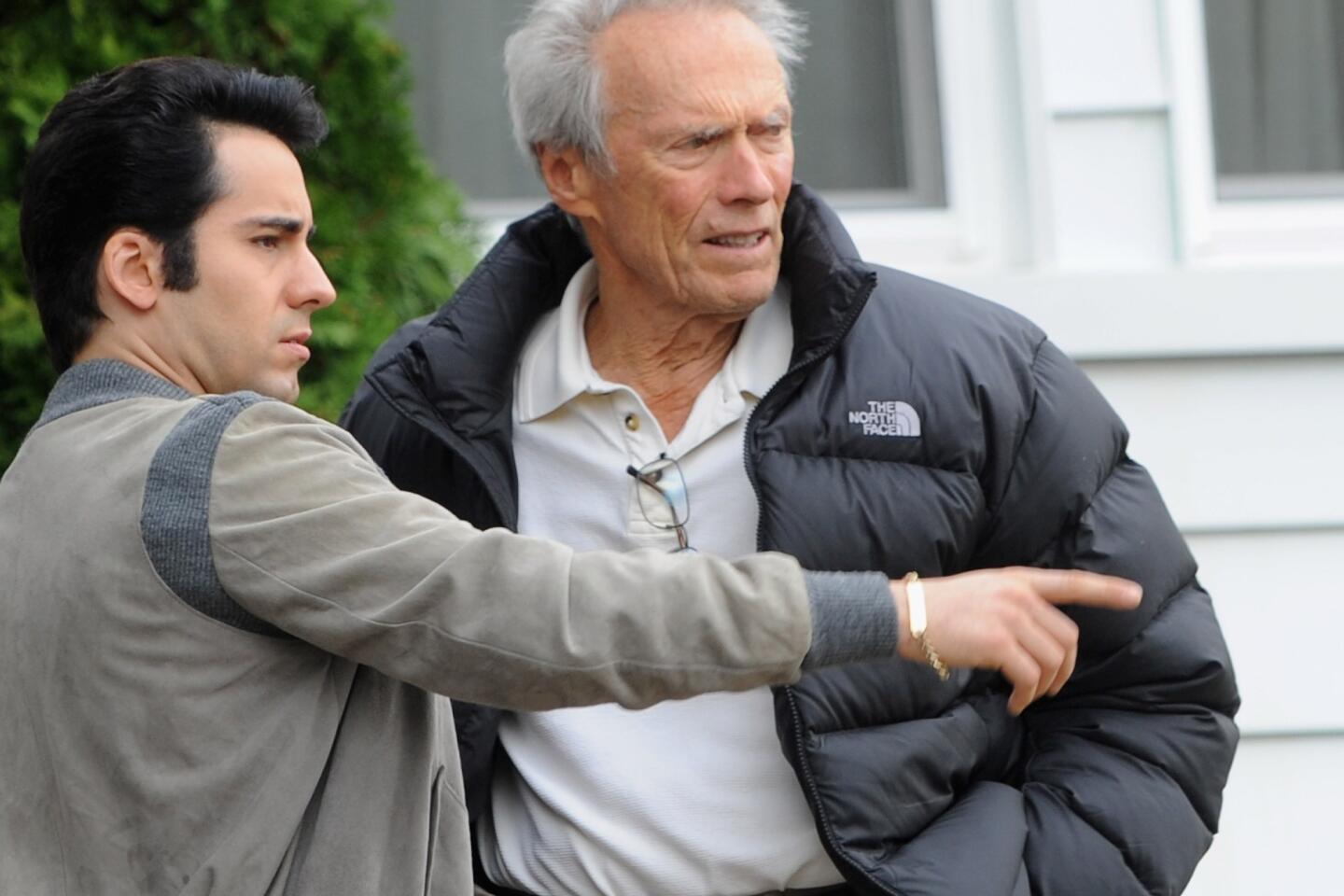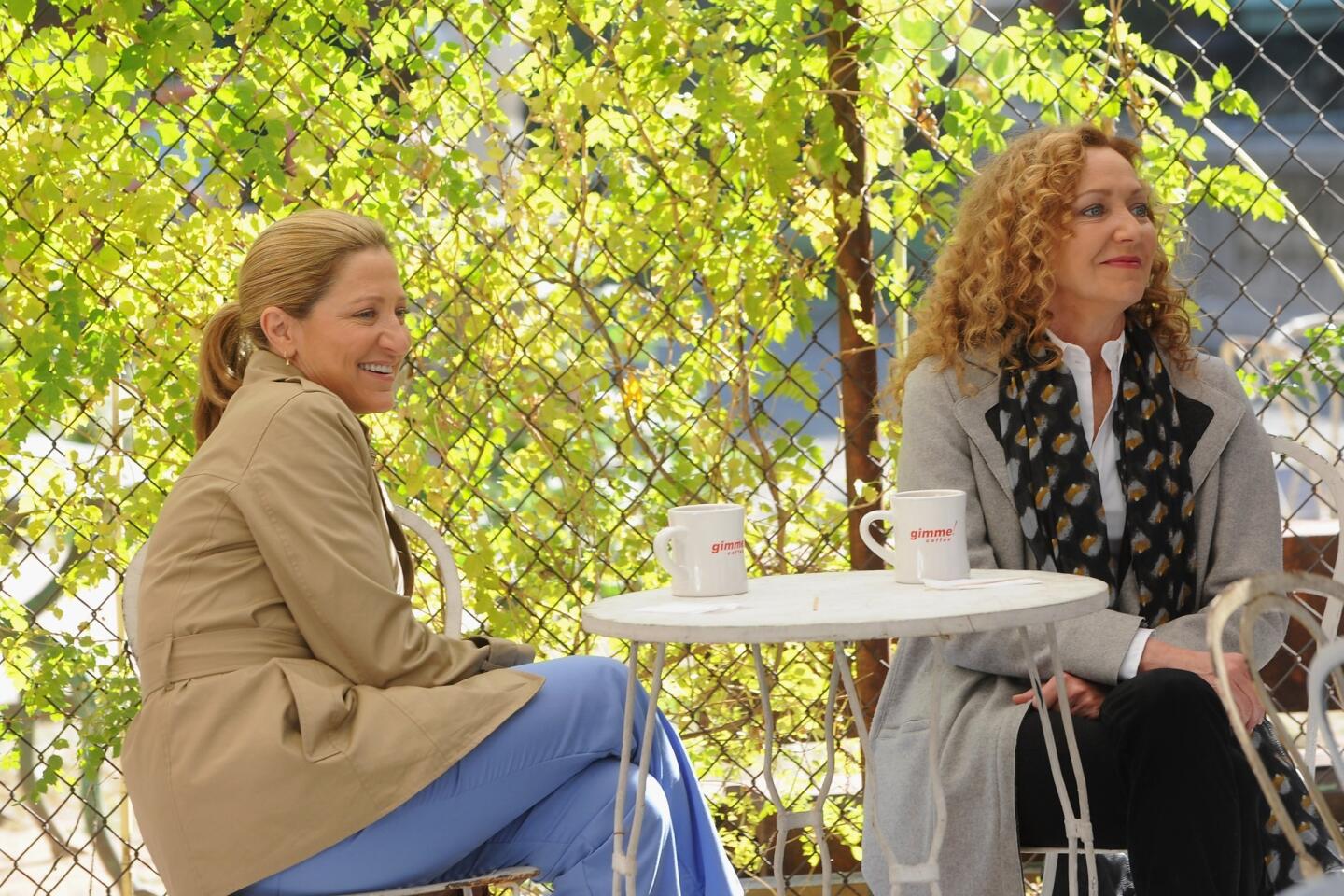Amid Obama presidency, films take major leap in facing race head-on
- Share via
TORONTO — Watching Steve McQueen’s achingly brilliant “12 Years a Slave” at the Toronto International Film Festival, I was struck by many things. The film’s artistry — script, performances, imagery — is significant. The movie is beautifully, painfully wrought at every turn.
But in a larger sense, it stands as a striking testament to how much the texture and tenor of conversations about race have changed through the prism of film in the years since Barack Obama took office.
Quite simply there are more movies that specifically address black-white friction in modern terms — the many shades of human interaction more starkly framed by the color of one’s skin.
WATCH: Toronto Film Festival trailers
No niche movies these. Filmmakers are seeking to touch, and turn, the heart, mind and conscience of mainstream audiences using language that is raw, candid, confrontational. For all the truth-telling, the subtext is concerned with illuminating the dynamics of the discord, then unifying.
Where in the past there might have been a single prestige film about race in the equation, this year in addition to “12 Years,” certain to be a major factor in the Oscar race, there is “Mandela: Long Walk to Freedom,” “Fruitvale Station,” “The Butler” and “42,” among others.
This is not to dismiss the legacy of earlier films. “Do the Right Thing” in 1989 and others in Spike Lee’s rich library, Steven Spielberg’s “The Color Purple” in 1985, “Mississippi Burning” in 1988, 2004’s multicultural racial clash in “Crash” and nearly everything in Sidney Poitier’s oeuvre all made powerful statements. But no sweeping traction was achieved.
Instead, Hollywood continued with business as usual. There was the occasional A-list film. Studios were also quick to draft exceptional African American talent for mainstream movies, making stars of Morgan Freeman, Denzel Washington, Will Smith, Samuel L. Jackson, Halle Berry, Eddie Murphy and many others in the process. And there were “black” films targeted to appeal to “black” audiences. Tyler Perry’s Madea has pretty much owned the genre in recent years.
The seeds of this latest change germinated in Obama’s very visible presence on the campaign trail. As his face dominated the images of the day, week after week, and the idea that he might lead our country took hold, the gears in Hollywood began to shift. Much of the movie industry’s success, after all, is tied to making the right bets, predicting what moviegoers will want to see. Will pay to see.
PHOTOS: Toronto Film Festival 2013
Often independent filmmakers get to the right conclusions before the studios. For me, the demarcation line begins in January 2009, when director Lee Daniels’ powerfully acidic “Precious,” adapted by Geoffrey Fletcher from Sapphire’s novel, rocked the Sundance Film Festival. It is not a pretty picture — Precious was an obese teen, pregnant by rape, her mother’s boyfriend the father. In her mother, an Oscar-winning performance by Mo’Nique, Daniels exposed all the rage that entrenched poverty can churn up, all the self-loathing.
It’s the kind of movie Hollywood would never make, would never believe might succeed. And yet it did. Critical acclaim, six Oscar nominations, two wins, a strong box office run that kept it in theaters far longer than anyone had expected. It sparked a great deal of debate within studios about the prospects for other challenging projects.
The conversation began to intensify, the texture of the stories on screen began changing. Later in 2009 “The Blind Side,” which earned Sandra Bullock an Oscar, looked white guilt right in the face. But black faces were still supporting players, race the backdrop. Whatever its flaws, the race-based story had audiences filling theaters, and the economic upside made the industry take notice.
In 2011’s “The Help,” a story of segregation’s last gasps, Emma Stone’s Skeeter was central, but the villains were white and the voices of dissent and empowerment raised belonged to African American maids. Octavia Spencer won an Oscar for her performance.
The irony of black help raising the South’s next generation of white children as Mississippi burned was the spine of the film. Once again theaters filled, black and white moviegoers debated and Hollywood took note.
This fall Daniels is back with a much subtler but no less powerful film in “The Butler.” Based on the long tenure of an African American man who served a series of presidents in the White House during seminal years of desegregation, it stars racial conflict. Forest Whitaker, Oprah Winfrey and the rest of the cast are really in supporting roles. Danny Strong’s script is filled with fine-spun dialogue that hones in on shifting attitudes about identity and entitlement. Like “Precious,” the film is told from an African American point of view. Unlike “Precious,” it was designed and destined for the mainstream market and an awards run.
A series of events over the summer accelerated the shifts in our perceptions of race. In July, George Zimmerman, a Florida man on trial for the murder of 17-year-old African American student Trayvon Martin, was acquitted. It brought waves of outrage and an unprecedented reaction from Obama: “If I had a son, he’d look like Trayvon” was striking for the way it personalized discrimination.
At the same time, a small film named “Fruitvale Station” was drawing notice. Written and directed by a rising young African American filmmaker, Ryan Coogler, it is an emotional telling of the death of Oscar Grant at the Bay Area subway station in 2008. Transit cops did the shooting, Grant the dying. The outcome in the murder trial was also controversial.
But rather than get into that fight, Coogler shows us a portrait of a Grant who was far from perfect, who had problems of his own making. Yet the gifted star Michael B. Jordan is so agile in exposing an interior life that when Grant dies on screen, you feel as if you’re witnessing a thousand other deaths of young African American men caused by fear, prejudice and anger.
Slavery itself is undergoing its own cinematic reassessment. Quentin Tarantino’s 2012 “Django Unchained,” starring Jamie Foxx, Kerry Washington, Christoph Waltz and Leonardo DiCaprio, was a stinging satire on the antebellum South and the slave trade. Its humor was singed with irony and accountability. Its shots of backs whipped, bodies torn, humans in bondage was unsparing.
In a way, “Django” was a perfect primer for “12 Years a Slave.” As damning as Tarantino’s film is, McQueen’s is more so for the way it hews to reality. There is no exaggeration, just as there was none in Solomon Northup’s original account. The free man, kidnapped and sold into slavery in the mid-1800s, writes with great detail, and yet eloquent understatement. It’s as if he were guided by a belief that mere truth could indeed set us — all of us — free. For director McQueen and screenwriter John Ridley, the film is a triumph. For Chiwetel Ejiofor, it’s an unparalleled performance. For audiences, I believe for many, it will be life-changing.
It is both the context and the concentration that makes this year so potent. Of filmmakers emboldened to deepen the debate. Of studios willing to fund it. Of searing images, unblinking in capturing racism’s destructive power. Of stories that implore us to become a nation that truly fulfills the constitutional promise of equality. Of performances that embody all the reasons the Rev. Martin Luther King Jr.’s dream should become reality.
I went to see “The Butler” with the paying crowd in my neighborhood. It is not, I’m sad to say, a very diverse one. The last stats I saw put African American residents at 2%. The percentage in the packed audience of all ages that day: zero. Yet when the final credits rolled, there was a standing ovation. Black story, black stars, black experience, white audience embracing it. That feels different. That feels like change.
More to Read
Only good movies
Get the Indie Focus newsletter, Mark Olsen's weekly guide to the world of cinema.
You may occasionally receive promotional content from the Los Angeles Times.
